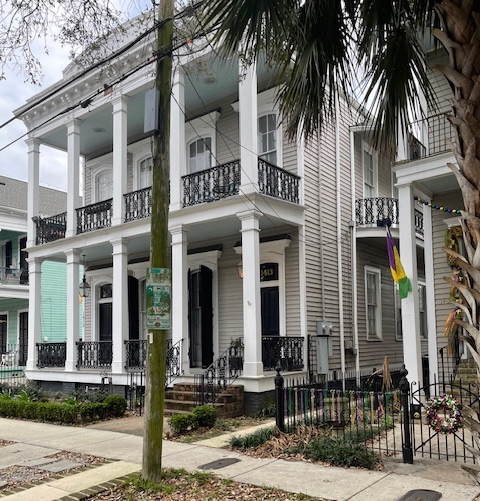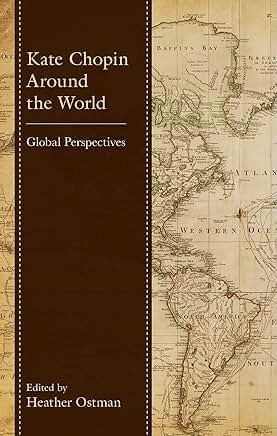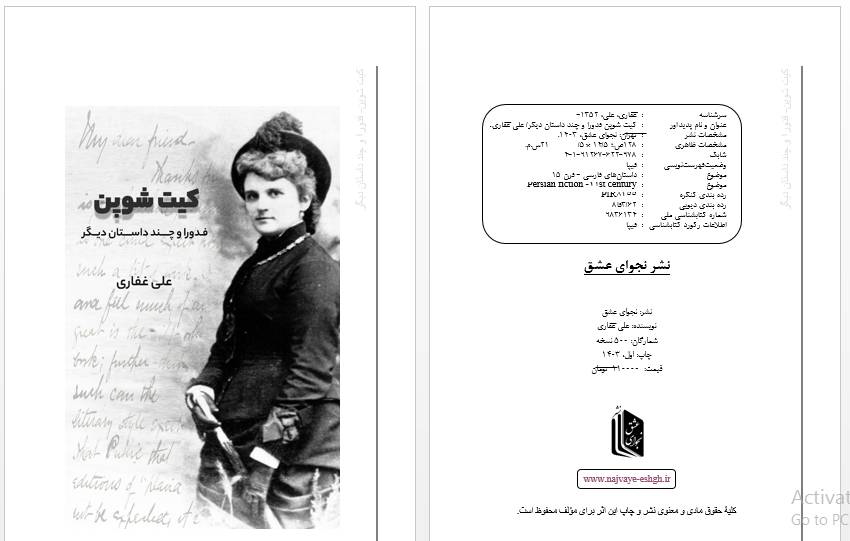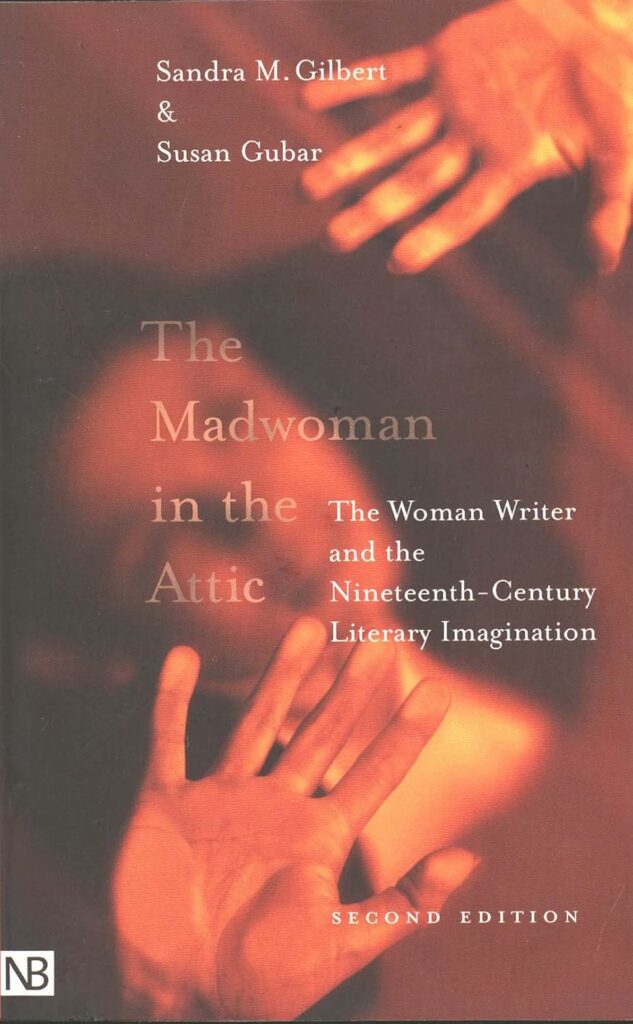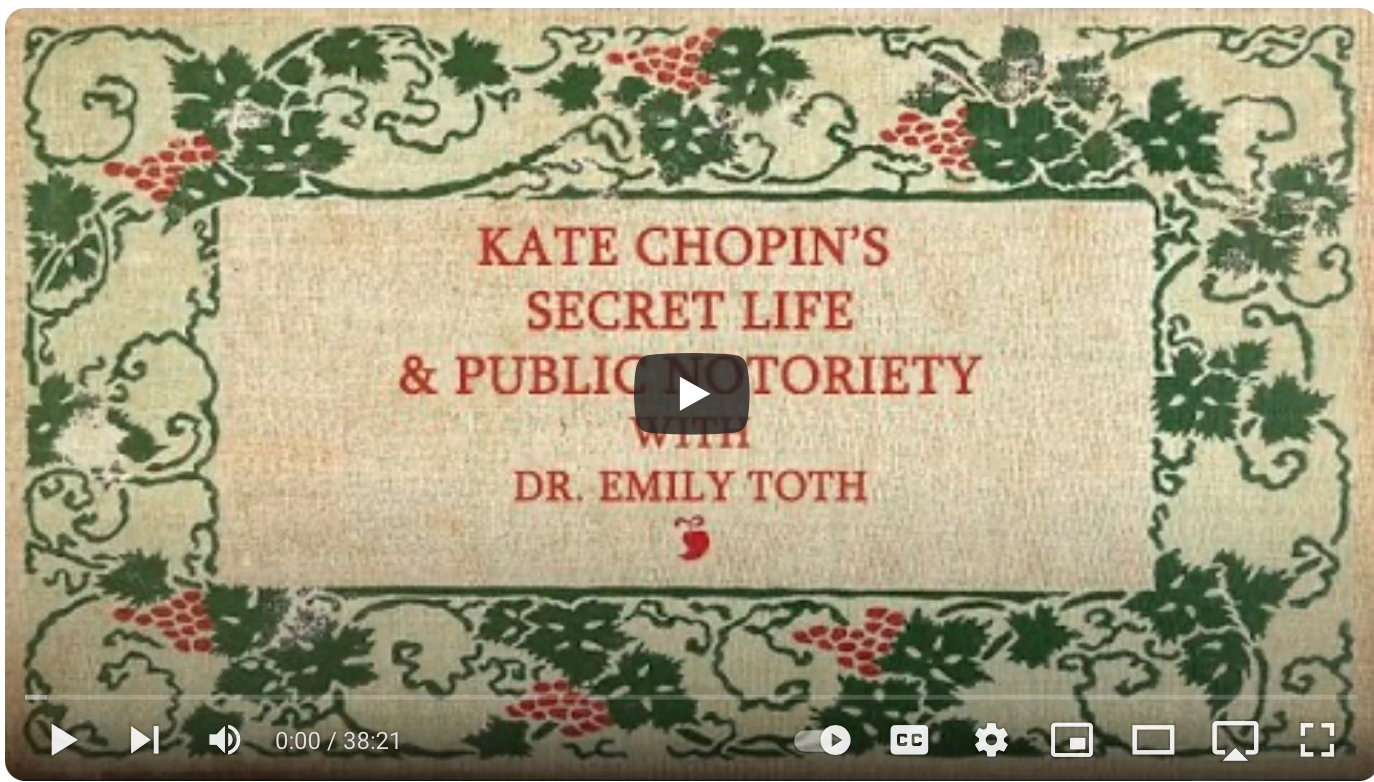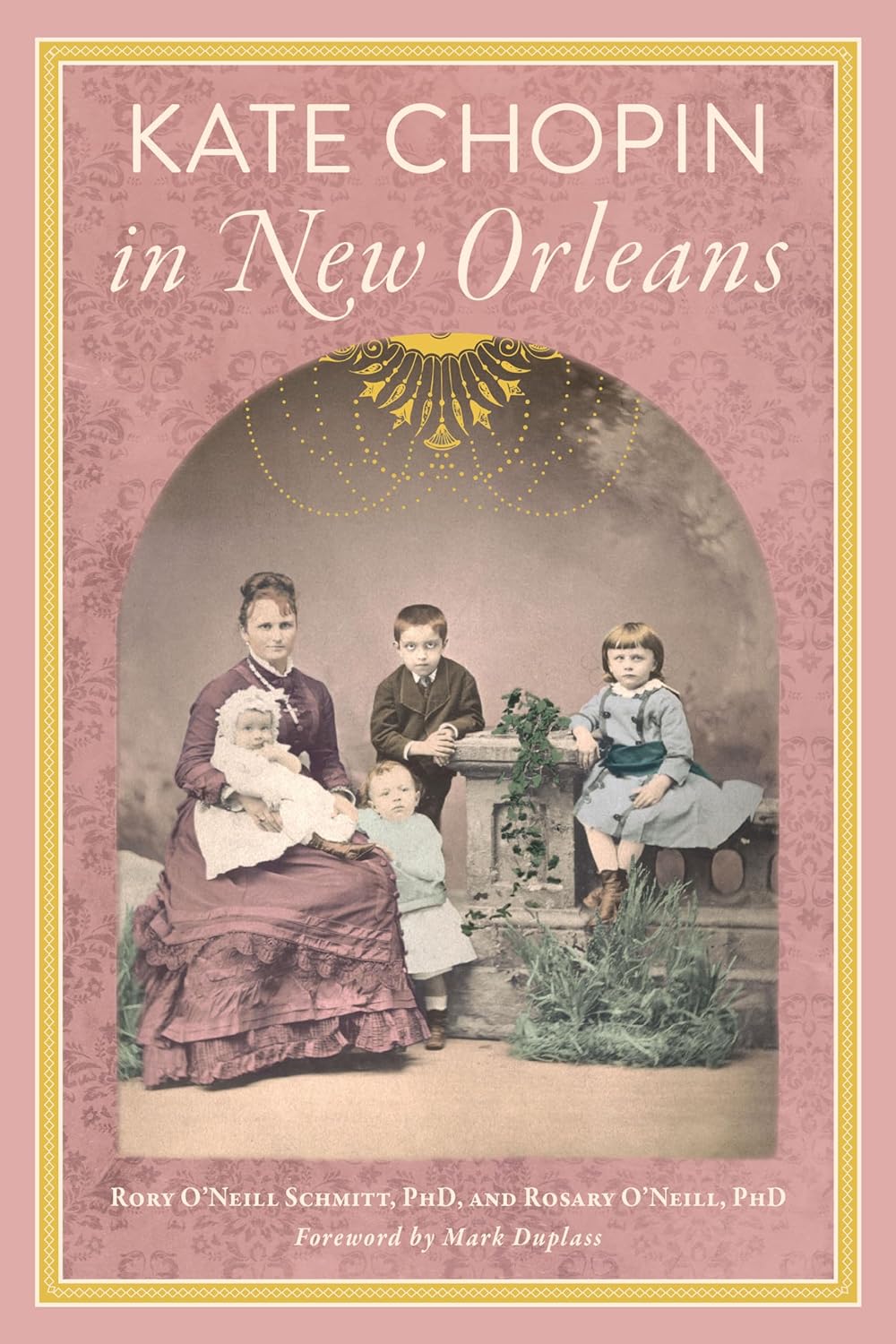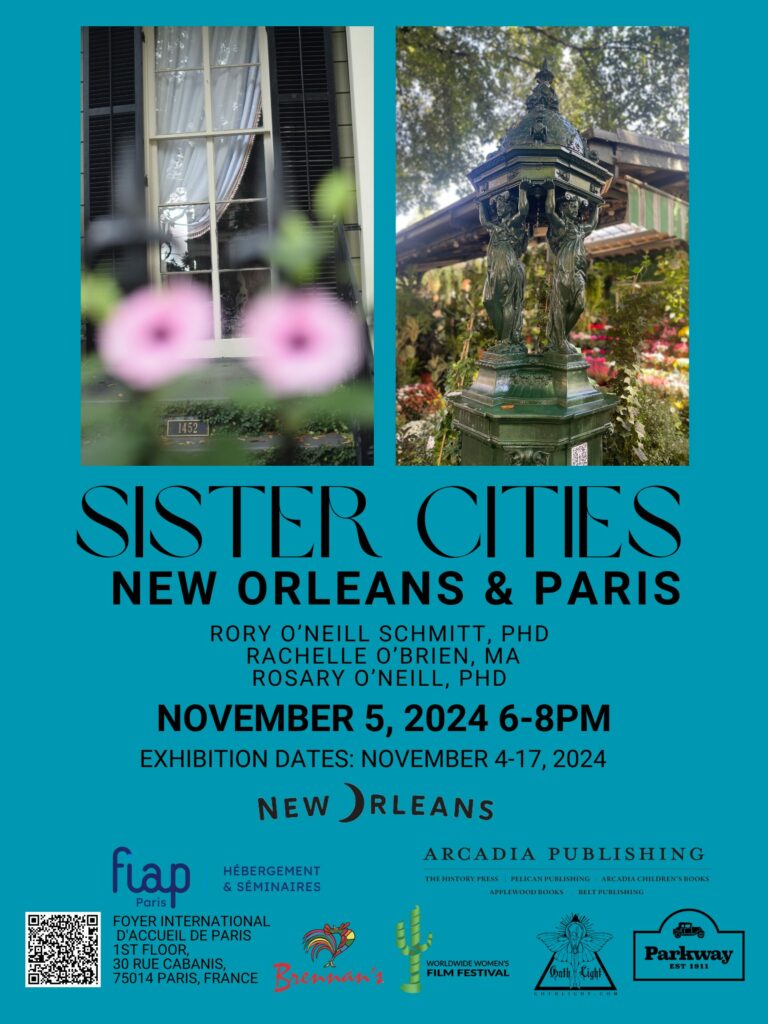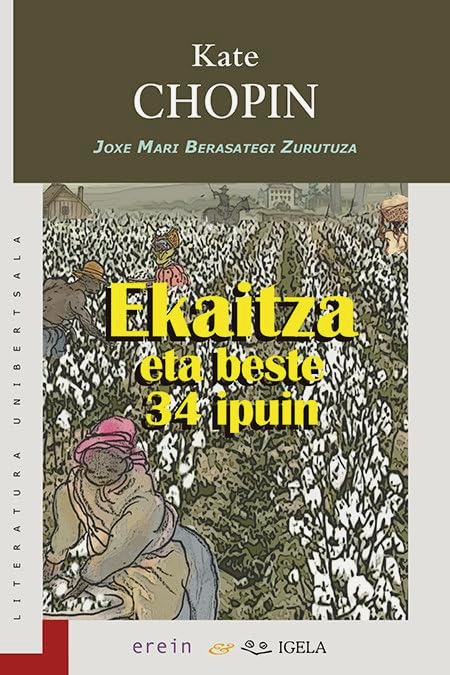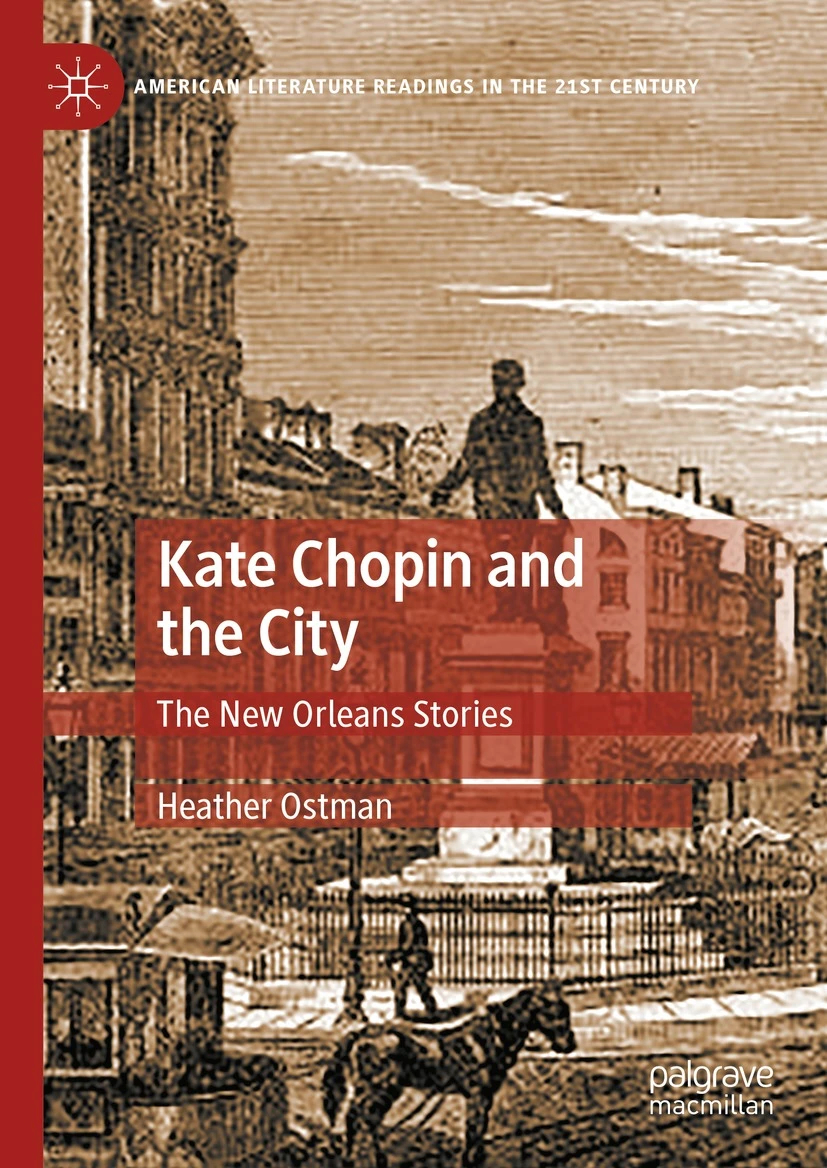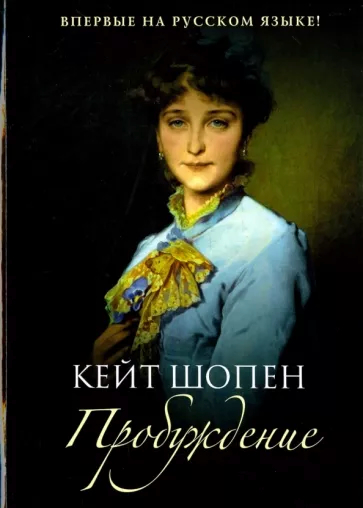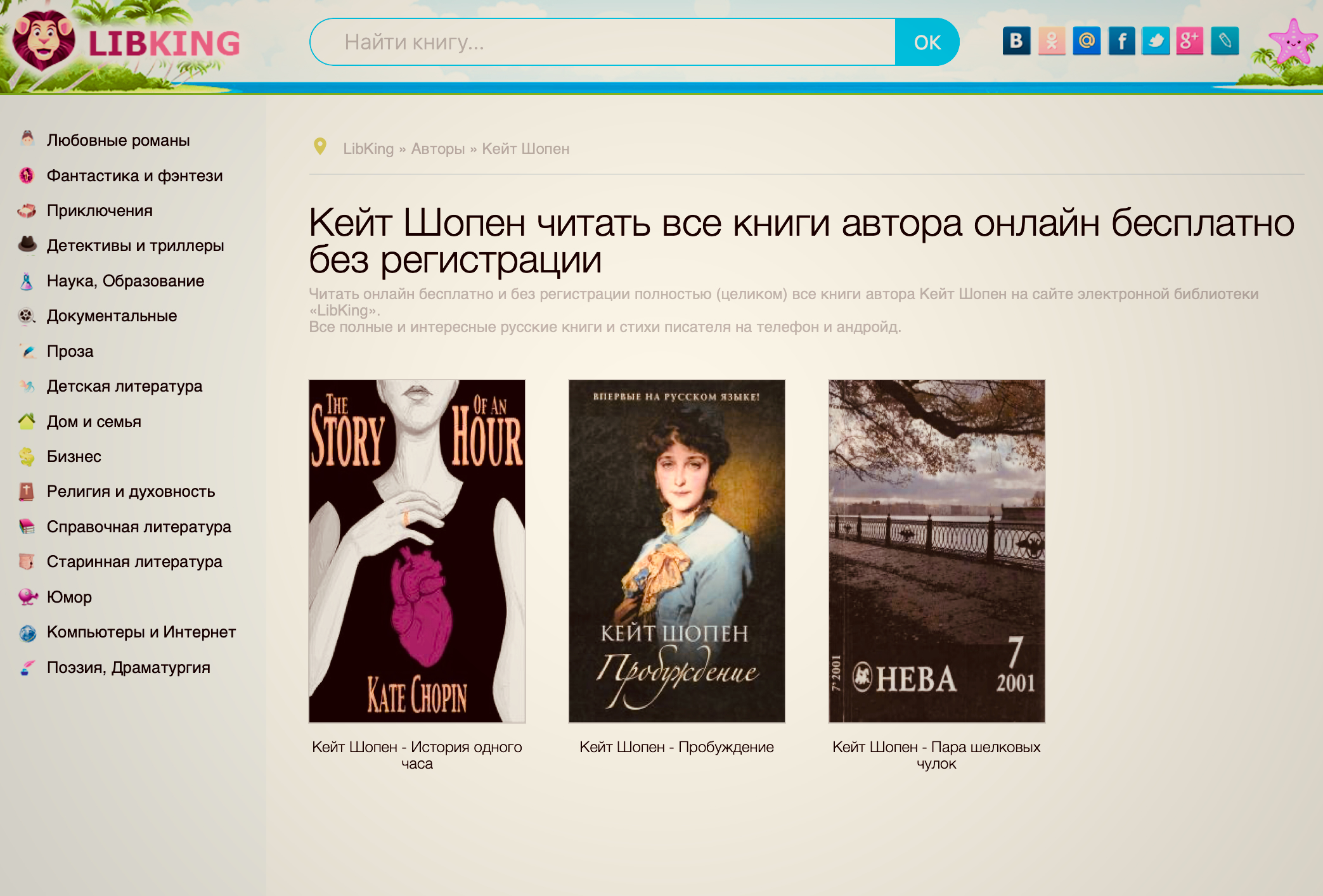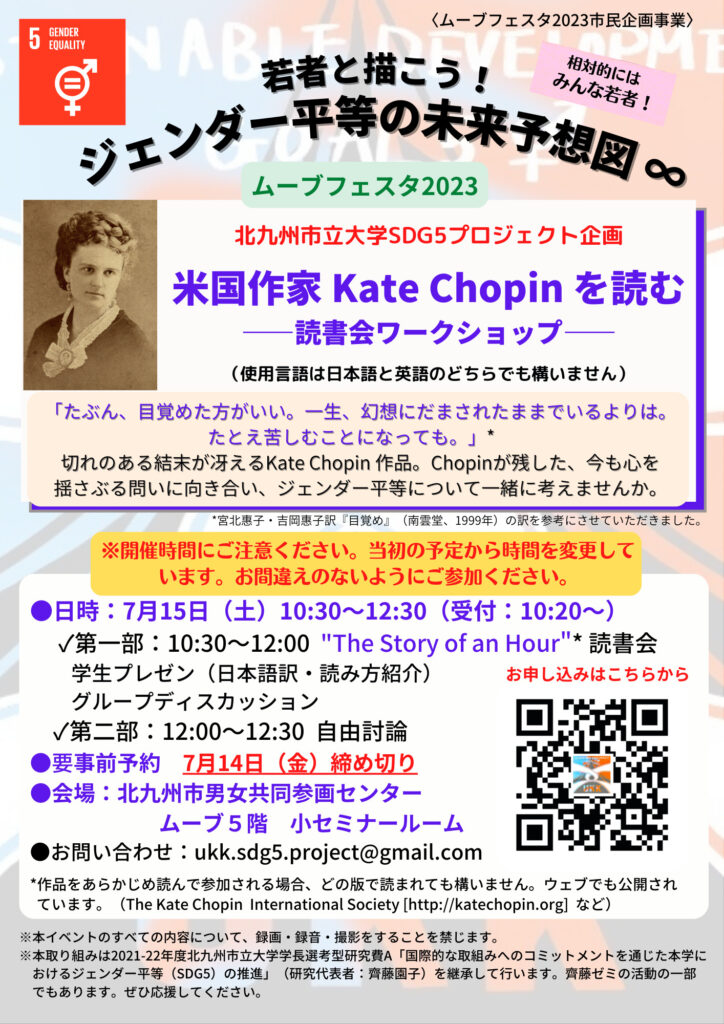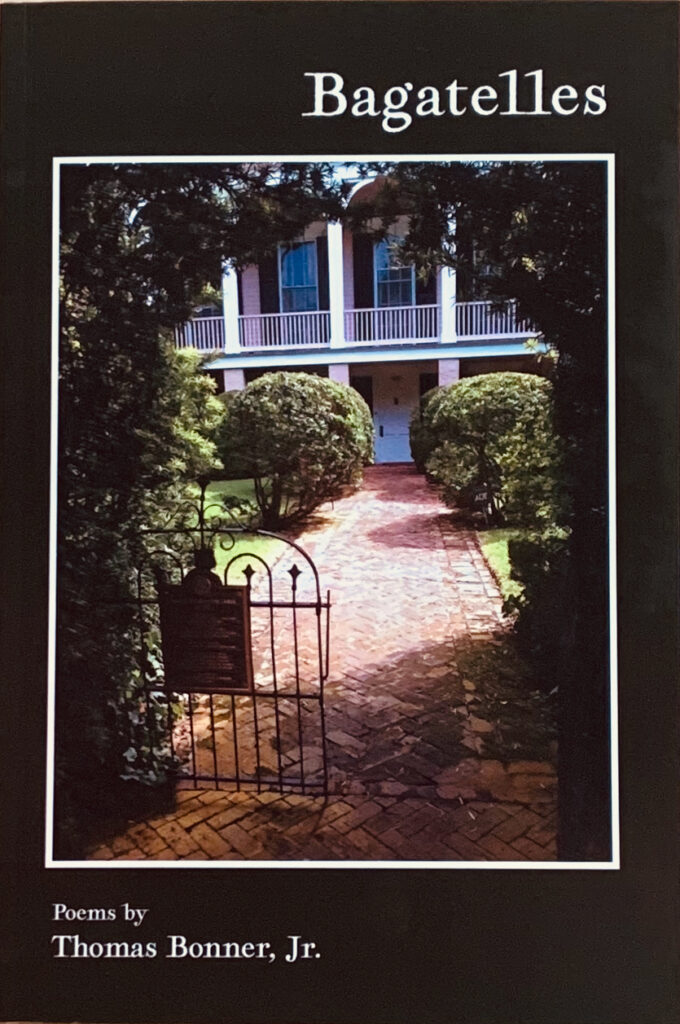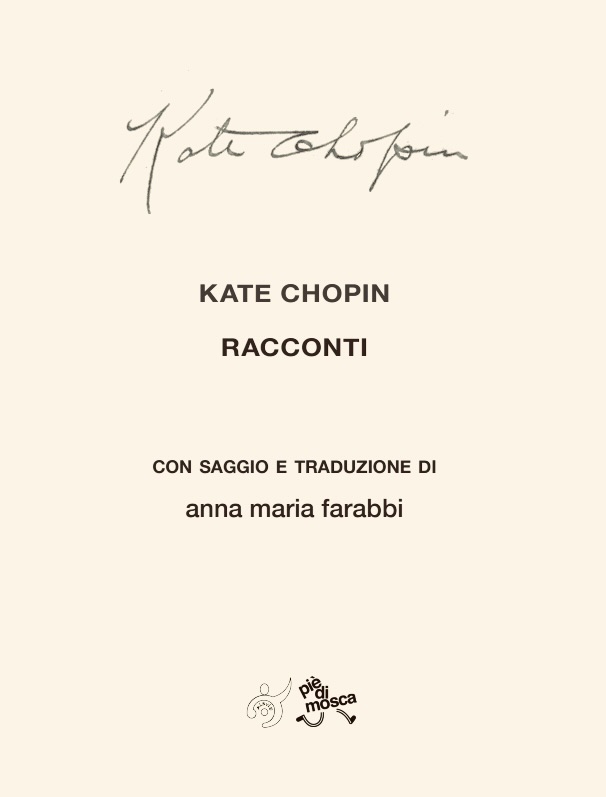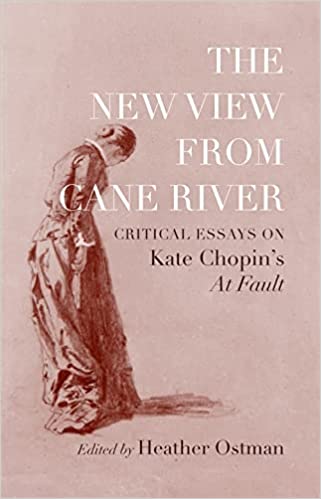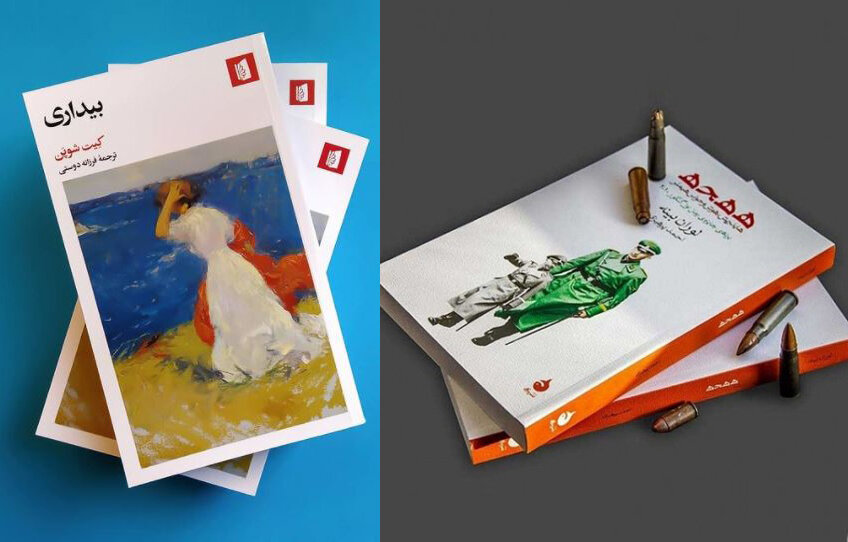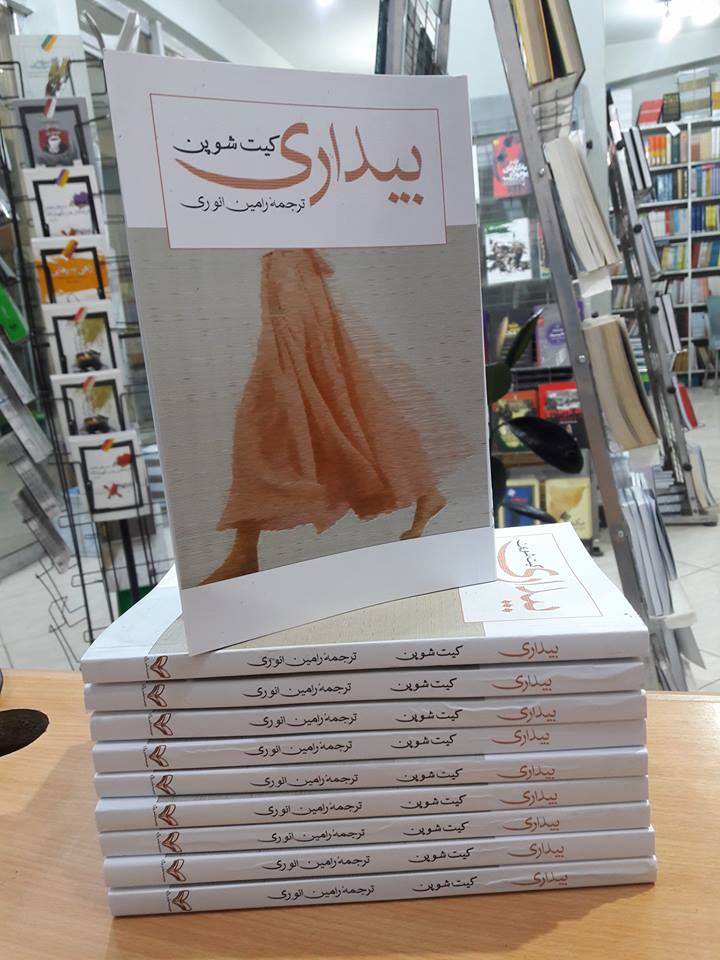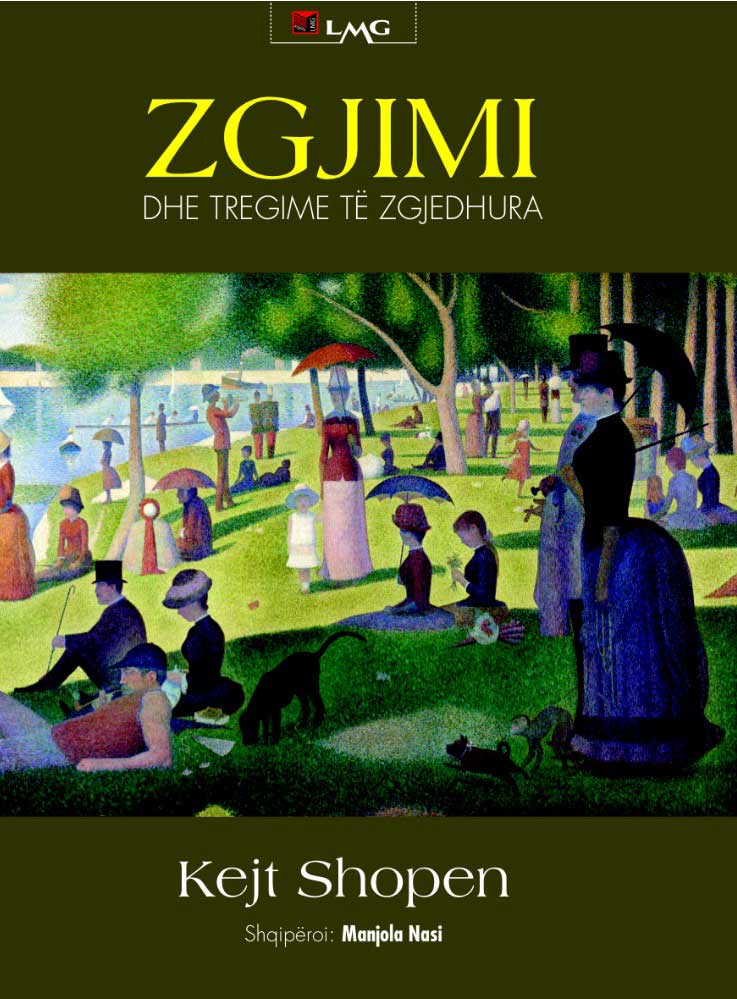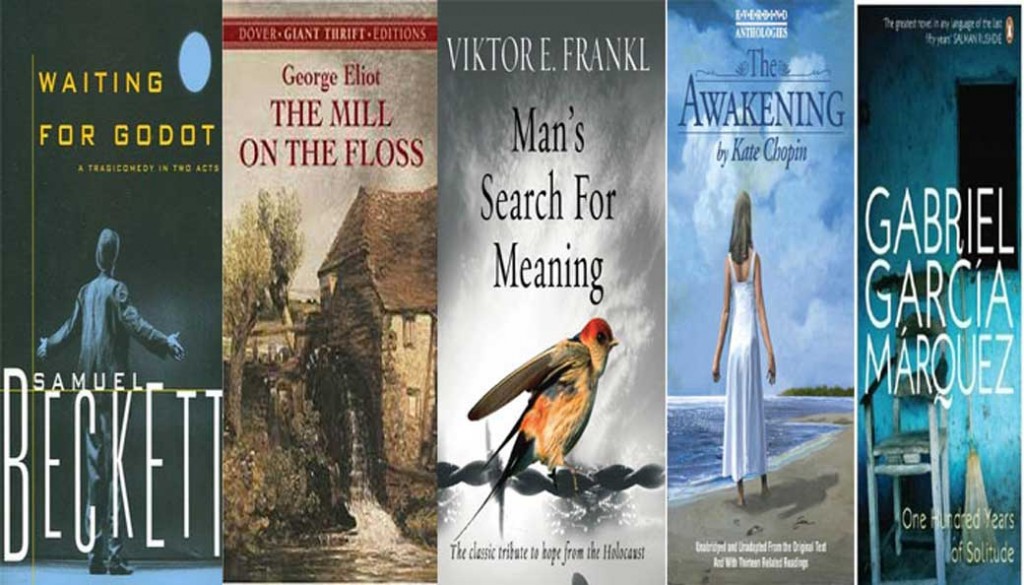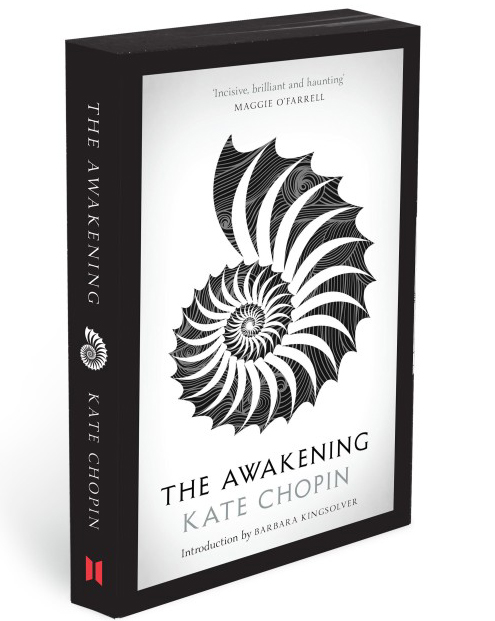By the Editors of KateChopin.org
Kate Chopin’s Last and Remaining Home in New Orleans: 1413 Louisiana Avenue
Kate Chopin scholar Thomas Bonner, Jr. writes that “Kate Chopin with her husband and five sons lived at 1413 Louisiana Avenue (formerly 209) from 1876 to 1879. She had previously had a home at the northeast corner of Pitt and Constantinople Streets. Earlier she and her family had resided at 443 Magazine Street.
“Moving to the 1413 side of the Louisiana Avenue double residence placed her near and within the upriver (Mississippi) edge of the Garden District, the often-termed elite American sector of the city developed in the aftermath of the Louisiana Purchase in 1803. Carved from much of the Livaudais Plantation as the city of Lafayette, it experienced much building in the 1840s before becoming part of New Orleans in 1852.
“The two-story home was built in 1872 on short raised piers—two years after Chopin arrived as a newlywed in the city. It was part of a third phase of the district’s residential development ending in 1873 with the national financial crash. The wood structure sits on a .14 acre lot, part of Census Tract 99. a block and a half on the riverside of St. Charles Avenue, between Prytania Street and Coliseum Street. Later, Chopin set part of “A Matter of Prejudice” on St. Charles Avenue and Prytania Street, which she used also in “A No-Account Creole” and “Cavanelle.” Bonner has posted a new webpage showing photos of the house as it looks today.
New Book: Kate Chopin Around the World: Global Perspectives
Lexington Books has published Kate Chopin around the World: Global Perspectives, edited by Heather Ostman. The book, the publisher’s announcement notes, “offers a fresh, international lens on Chopin’s impact on readers around the world. Contributors from multiple continents situate Chopin’s fiction within national and regional locales, reflecting on the reading, researching, and teaching of her work through different cultural lenses. Essays, from both new and seasoned Chopin scholars, draw from a range of critical approaches to demonstrate the broad-reaching effects Chopin has had around the globe. At times, their essays are personal, as contributors reflect on the profound effect the author’s fiction had on their lives, research, and even students. Read together, the essays offer a rich conversation with a multiplicity of perspectives from different countries and cultures, demonstrating the incredible influence Chopin—a nineteenth-century American widow who sought to support her six children through her writing—has had on readers, scholars, and teachers for generations.”
Two reviews of the book:
“In just over half a century since the Kate Chopin revival of the 1960s, when her novels and stories were available only in English, her fiction, especially The Awakening, has been translated into twenty-four languages and published across the world. Authoritative Chopin scholar, Heather Ostman has introduced and edited this ground-breaking collection of critical essays documenting Chopin’s published international presence by leading scholars Bernie Koloski (France), Helen Taylor (Britain), Heidi M. Podlasli (Germany), and Eulalia Piñero Gil (Spain), as well as by newer critical voices from Russia, Italy, South Asia, and Qatar. This is a milestone volume, reflecting Chopin’s arrival on the world’s stages. “– Thomas Bonner Jr., Xavier University of Louisiana
“Ostman’s volume confirms that for nearly the last century, Chopin’s work has traveled the globe, garnering more interest across continents than the author of local color fiction ever could have hoped to achieve in her lifetime. Although informed by her European ancestry and American birth, Chopin’s fiction does not belong to any one nation; its explorations of the tensions between individual freedoms and cultural institutions contain endless uses for audiences across time and place.”– Bonnie James Shaker, Kent State University at Geauga
The book’s chapters and authors:
Kate Chopin’s Works in France—by Bernard Koloski with Translations by Monique Oyallon
Bringing Kate Chopin to Britain—by Helen Taylor
Reading Kate Chopin as a Brazilian—by Cido Rossi
“The Story of an Hour” in the Middle Eastern Classroom—by Mohanalakshmi Rajakumar and Geetha Rajeswar
Kate Chopin in Russia—by Irina V. Morozova
Kate Chopin and the Women Writers of the German Vormärz—by Heidi M. Podlasli-Labrenz
The Transnational Literary Dialogue in Kate Chopin’s “A Pair of Silk Stockings” and Emilia Pardo Bazán’s “Las medias rojas”—by Eulalia Piñerio Gil
Gendered Economics and the German Bildungsroman in Kate Chopin’s Short Stories and Novels—by Martina Jauch
Laywomen and Nuns in Kate Chopin’s “Lilacs” and Edna O’Brien’s “Sister Imelda”—by Francisco José Cortés Vieco
Patriarchal Progeny in Mary Shelley’s Frankenstein and Kate Chopin’s The Awakening—Jessie Wirkus Haynes
The Narrative Orchestra in Kate Chopin—by Anna Maria Farabbi
Heather Ostman is Professor of English of SUNY Westchester Community College in Valhalla, New York. She is the author or editor of Kate Chopin and the City: The New Orleans Stories, The New View from Cane River: Critical Essays on Kate Chopin’s At Fault, Kate Chopin and Catholicism, Kate Chopin in Context: New Approaches (with Kate O’Donoghue), and Kate Chopin in the Twenty-First Century: New Critical Essays. She is the President of the Kate Chopin International Society.
Inspiration and Transcendence in the Fiction of Kate Chopin: Echoes of Nineteenth-Century German Women and Women Writers by Heidi Podlasli-Labrenz in Bremen, Germany, has been published by Rowman and Littlefield. Lynne Tatlock at Washington University in St. Louis wrote the foreword for the book.
The book, the publisher writes, “marks the first comprehensive study which explicitly links Kate Chopin’s work to nineteenth-century German women writers Fanny Lewald, Ida Hahn-Hahn, Malwida von Meysenburg and German women, Antoinette Fehringer and Eleonore Grunow, who served as role models for her fiction. This book (re)-establishes connections to Chopin’s contemporaries Nietzsche, Hegel, and Schopenhauer and introduces her indebtedness to the writers of the German Romantic period, Friedrich Schlegel and Novalis, the theologian Friedrich Schleiermacher and the politician Carl Schurz. The modernity of her fiction and the radical-progressive tenets established through her transatlantic influences place Kate Chopin’s work into the context of major historical, socio-political and philosophical movements of nineteenth-century Europe.”
Heidi Podlasli-Labrenz has long been the editor of this website’s page describing German translations and scholarship. She organized a symposium, “More Than Just a Southern Writer,” held at Knoop’s Park / Kränholm in Bremen-St. Magnus, Germany, on July 8, 2016. It was the first Kate Chopin international conference held outside the United States.
Kate Chopin’s Short Stories in Iran
Kate Chopin, “Fedora” and Other Stories, translated and with commentaries by Ali Ghafari, has been published by Nejvai Eshgh in Iran.
There are eight short stories in the book: “Fedora,” “The Story of an Hour,” “The Storm,” “A Pair of Silk Stockings,” “A Respectable Woman,” “Regret,” “Juanita,” and “The Blind Man.”
Dr. Ghafari writes, “Kate Chopin is known in Iran with the novel The Awakening. I first read ‘The Story of an Hour’ many years ago. There was a similarity between my childhood experience and the settings of Chopin’s stories (I was born in a rural area in northern Iran, with fog, rain, and fields).
“I felt that I could present a translation of Chopin’s stories in Persian close to the style and atmosphere of Chopin’s stories. (I hope so). In the last few years, the acceptance of feminist literature has increased in Iran, and most of the students in Iranian universities are women. A book about women’s issues has many chances to be read.
“My book is not only a translation of some of the stories, but also a book about Chopin herself.”
Honoring Women’s Literature Historian, Theorist, and Critic, Sandra Gilbert (1936–2024)
Bonnie James Shaker has posted a webpage acknowledging the loss of women’s literature pioneer, Sandra Gilbert, on November 10, 2024.
“Today’s students of Kate Chopin,” Shaker writes, “might encounter Gilbert by chance, casually stumbling upon her article, “The Second Coming of Aphrodite: Kate Chopin’s Fantasy of Desire,” while seeking insight into the gold imagery gleaming throughout Edna’s dinner party scene in The Awakening. If that is students’ only exposure to her, they might think of Gilbert as a Chopin scholar, one who devoted her entire career to the study of a single author. . . . Gilbert was far more consequential.”
You can read Bonnie James Shaker’s tribute. And you can access Gilbert’s full obituary.
Podcast about Kate Chopin at the American Writer’s Museum
The staff at the American Writers Museum invited Heather Ostman and Bernard Koloski to do a podcast about Kate Chopin’s writing.
The American Writers Museum explains: “As the nation’s only museum dedicated to American writers and their influence on our history, our culture, and our daily lives, we embrace and celebrate our common humanity, and the inherent worth of all people.”
The museum opened in Chicago in 2017. It seeks to “educate the public about American writers — past and present; engage visitors to the Museum in exploring the many exciting worlds created by the spoken and written word; enrich and deepen appreciation for good writing in all its forms; motivate visitors to discover, or rediscover, a love of reading and writing; and inspire the young writers of tomorrow.”
Emily Toth’s Video about Kate Chopin’s Life
The Louisiana Book Festival released a video “Kate Chopin’s Secret Life and Public Notoriety with Dr Emily Toth” in March 2024. The Festival is a program of the Louisiana Center for the Book in the State Library of Louisiana. The Festival explains:
“It was 125 years ago when Kate Chopin’s The Awakening hit shelves — and faced immediate backlash. Called “poison” by The St. Louis Republic and “trite and sordid” by The Pittsburgh Leader, the novel about a woman who embarks upon a journey of self-discovery while on vacation in Grand Isle was out of step for the time and largely forgotten until well into the 20th century. Who was Chopin and what led her to write the controversial novel in 1899? Dr. Emily Toth answers that question in this presentation as the Louisiana Center for the Book in the State Library of Louisiana celebrates Women’s History Month.”
You can read a short article about the 125th anniversary of The Awakening that draws on Emily Toth’s work. The article was written by Jack Barlow and was published in The Advocate in Louisiana on 31 March 2024.
The Library of America Features Kate Chopin’s Short Story “A Point at Issue!”
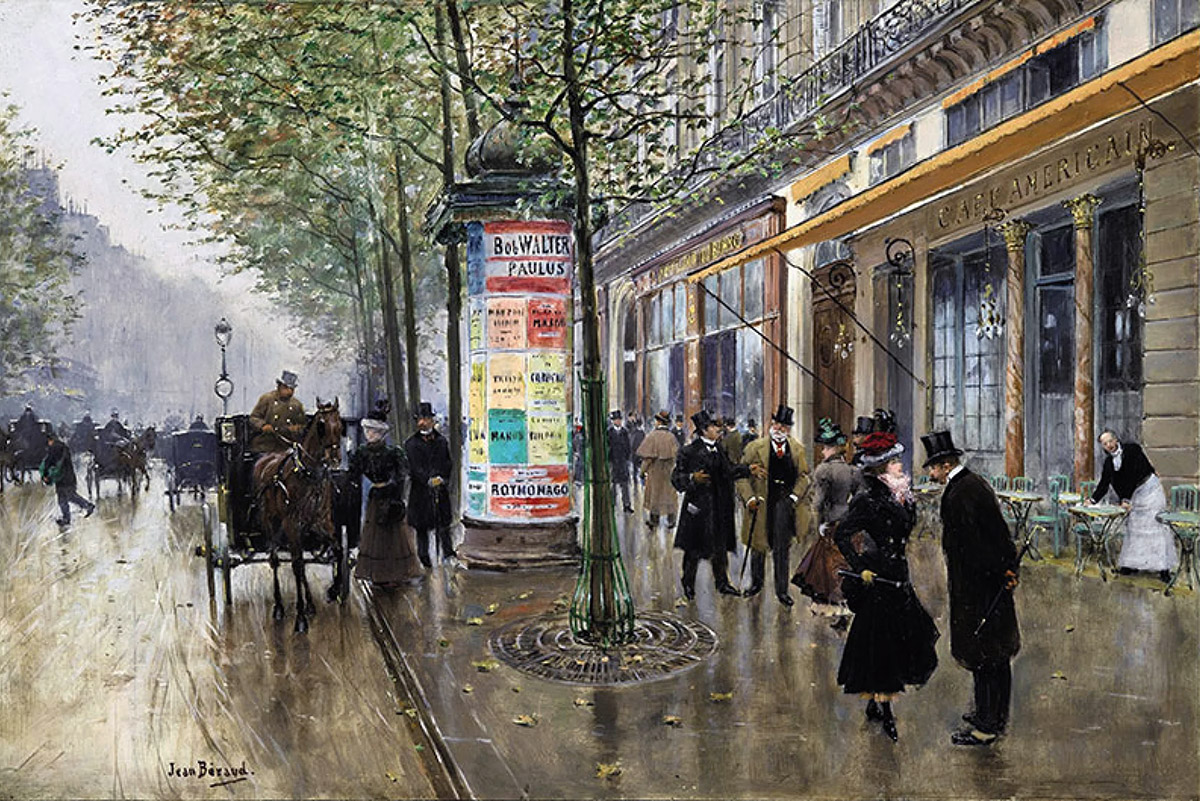
On February 8 (Kate Chopin’s birthday) 2024 the Library of America, which publishes Kate Chopin: Complete Novels & Stories, posted a webpage about Chopin’s early short story, “A Point at Issue!” as its Story of the Week.
You can read the story and information about it on our website’s story page.
The Library of America has also published Story of the Week webpages for Chopin’s “Désirée’s Baby,” “The Story of an Hour,” and “A Visit to Avoyelles.”
Rory O’Neill Schmitt
New Book: Kate Chopin in New Orleans
The History Press has published Kate Chopin in New Orleans by Rory O’Neill Schmitt and Rosary O’Neill, who had earlier published Edgar Degas in New Orleans.
The book has two parts. Part 1 includes descriptions and photographs of Kate O’Flaherty’s family in St. Louis and places in Europe where Kate Chopin and her husband went on their honeymoon trip. It has descriptions and photographs of New Orleans and rural Louisiana where the Chopins lived, as well as an explanation of a possible connection between the Chopins and Edgar Degas who lived in New Orleans at one point in the 1870s. Chapters 6, 7, and 8 include imaginary conversations dramatizing what might have been spoken in Louisiana between Chopin and her husband and Chopin and a man with whom she may have had a relationship. It closes with chapters about Chopin’s life as a writer in St. Louis.
In Part 2 the authors write, “Our book is not a biography of Kate Chopin. Plenty of brilliant scholars and historians have written those. Rather, we your authors, daughters of New Orleans, show how Kate’s experience in our home state deeply affected her identity and her writing. Included in the back matter of this book are interviews with scholars, experts and descendants, who informed our research.” That’s followed by interviews with four Kate Chopin scholars, a New Orleans Studies scholar, two film producers, a costume designer, a fashion historian, and three of Kate Chopin’s great-granddaughters. It concludes with a timeline of Kate Chopin in Louisiana.
In their Preface to Kate Chopin in New Orleans the authors write, “Louisiana wrenched Kate’s heart and sent her to her writing desk, a sanctuary for her deep private joy and agony. She spoke her truth and in so doing she spoke ours and became one of the first great American authors.”
In Paris, France, during the week of November 4, 2024, Rosary O’Neill and Rory O’Neill Schmitt will be having the global book launch of Kate Chopin in New Orleans. They will also participate in an art exhibition (with photography from their books), called “Sister Cities: New Orleans & Paris.”
Chopin’s “The Storm” and 34 Other Stories in Basque
Erein Argitaletxea in Spain published Kate Chopin’s “The Storm” and 34 Other Stories in Basque in 2022. The stories were translated by Joxe Mari Berasategi Zurutuza who worked with the Basque Service of the Basque Government’s Department of Education and was head of the Basque Service in the Provincial Council of Álava.
Kate Chopin and the City: The New Orleans Stories
Palgrave Macmillan has published (dated 2024) Kate Chopin and the City: The New Orleans Stories by Heather Ostman.
The book, the publisher writes, “Explores the representation of New Orleans in Kate Chopin’s short stories and novels, argues that Chopin’s depictions of New Orleans offer new insights into the advent of modernity, and reveals the historical, social and aesthetic contributions of the city and its practices of inequity and cruelty.”
Heather Ostman is the author of Kate Chopin and Catholicism and the editor or co-editor of three collections of scholarly essays about Kate Chopin’s work. She is President of the Kate Chopin International Society.
Пробуждение: Russian Translations of Kate Chopin’s Works
We are extremely grateful to Julie Loison-Charles, who is a Senior Lecturer at the Université de Lille in France, for guiding us to translations of Kate Chopin’s works into Russian. We have for many years been able to document translations into twenty-some languages. But we have had difficulty finding Russian translations. Professor Loison-Charles, a specialist in translation who has worked on Kate Chopin and Vladimir Nabokov, guided us to Russian websites showing that three different translators have worked on “The Story of an Hour,” other short stories, and — in 2017 — The Awakening, translated by E. Bogdanova.
The book with the translation of Пробуждение (The Awakening) also includes these short stories:
За ручьем “Beyond the Bayou”
Мэ`эм Пелажи “Ma’ame Pélagie”
Ребенок Дезире “Désirée’s Baby”
Приличная женщина “A Respectable Woman”
Поцелуй “The Kiss”
Пара шелковых чулок “A Pair of Silk Stockings”
Медальон “The Locket”
Размышление “A Reflection”
There are many reader comments on the publisher’s Awakening website. Here are a few from 2018, 2019, and 2020 (translated from the Russian by Google and verified by Monique Oyallon). One writes:
“When you read in the annotation of a book that you have never heard of (although it was written at the end of the 19th century!), ‘one of the greatest works in American literature,’ then doubts about the adequacy of such an assessment, you see, are quite acceptable. Imagine my amazement (as some reviewer would have written in a similar situation at the end of the 19th century) when it turned out that this was indeed the case.
“Of course, this story may shock only [especially conservative people] now, but this in no way detracts from its outstanding literary merits. If we try to draw parallels with similar works, then ‘The Awakening’ is undeniably better than ‘Lady Chatterley’s Lover’ (written much later) and may well ‘compete’ with ‘Madame Bovary’, which appeared, however, much earlier.”
Other readers responded to Chopin’s work in ways similar to those of readers around the world since the 1970s.
One writes, “Even though I read the novel a few weeks ago, I still sometimes return to it in my mind, I’m very glad that I met this author.”
Others consider Chopin’s works “partially autobiographical,” or they are impressed by how Chopin “paints portraits of women of that time as individuals with their own wants and needs,” or they like or dislike Edna Pontellier, or they compare The Awakening with Anna Karenina, Madame Bovary, or Martin Eden, or they complain about or praise the quality of the translation.
Many readers like the short stories. One says the story “about a woman who suddenly has 15 dollars is completely timeless.”
You can see these and other comments from readers in the original Russian.
A Professor in Russia Responds to This Announcement
Professor Irina Morozova tells us: “In 1993 I was the first person in Russia who wrote an article on Kate Chopin’s works, and my colleague Olga Golubkova translated two short stories according to my request (“The Story of an Hour” and ” A Respectable Woman”). Unfortunately, it was a journal of Udmurt State University (Izhevsk), so not many people read it. But I am proud of being the first person who brought Chopin into the Russian cultural sphere. My husband once met Emily Toth in the US, and she was so generous to give her biography of Kate Chopin for me. Now I am professor of literature at the Russian State University for the Humanities (in Moscow), and my professional interests have changed a little bit, but I do not forget about Kate Chopin, one of my favourite writers.”
Professor Morozova has published articles and books about American writers, including The “Southern Myth” in Women’s Writings of the Old South, published in St. Petersburg. She has had a Fulbright research grant at the University of Central Florida.
Gender Equality Workshop in Japan Based on Chopin’s “The Story of a Hour”
Professor Sonoko Saito at the the University of Kitakyushu, Japan, tells us of the “Kate Chopin Reading Workshop: Let’s Paint a Future of Gender Equality Together!” on July 15, 2023, from 10:30 AM until 12:30 PM at the Kitakyushu Municipal Gender Equality Center Move in Kitakyushu, Fukuoka.
Professor Saito writes: “This is a workshop to read and discuss Kate Chopin’s work. The focus is on ‘The Story of an Hour.’ The workshop includes the introduction of a Japanese version, a translation done by our seminar group members, and an analysis of the story by the seminar group students. The workshop is held during the annual event weeks called ‘Move Festa.’
“Education can contribute powerfully to gender equality by making the arena of discussion available for students to openly discuss what they have in mind. One of the frameworks that I have been interested in is the Model United Nations, and I have been involved in the promotion of English Model United Nations activities on campus.
“This led to a project entitled ‘Promotion of Gender Equality on the University of Kitakyushu Campus through Commitment to International Educational Programs on an Intra-university Grant.’ This was promoted in the academic years 2021 and 2022 through a collaboration between participating students and professors at University of Kitakyushu. And last year, in 2022, our project students held an event at the same Move Festa and presented the outcome of their survey on gender equality in Japan.
“The focus of our 2023 event is Kate Chopin. As our seminar works basically in American Studies and Literature in English, the members have read some of Chopin’s stories together. Her stories, including “The Story of an Hour,” are inspiring, with a power to make readers look into their deeper selves and question what looks like a matter of course in a given society. We are supposed to be free subjects — but to what extent are we free?
“In terms of gender equality, are we not supposed to be free from the existing gender categories as well as the number of roles attached to these gender categories? Chopin’s work opens a space where readers can explore the mystery and uncertainty of our gendered being.
“The workshop aims to open a space for readers to share their insights with others, reaching a wider range of readers who do not usually participate in our seminar group discussions.
“The workshop is committed to international efforts to offer future generations a more gender-equal society where no one is left behind.”
Chopin Scholar Thomas Bonner’s New Book of Poems
Bagatelles, a new book of poems by Thomas Bonner, Jr., has been published in January, 2023, by Booklogix. Bonner has been a well-known Kate Chopin scholar for many years. He has published articles and book chapters about Chopin and her work in the United States and abroad. His Kate Chopin Companion has been a standard reference volume for decades. His article about Presbyterianism in The Awakening will be published in April, 2023. Bonner is Professor Emeritus at Xavier University of Louisiana and a native New Orleanian.
Bagatelles, his book cover notes, “captures the light spirit of the brief poems, some with playful nuances and others more penetrating. From the French, the word suggests a trifle, even a game. . . .” The poems “touch on daily life, places and customs, troublesome issues, visual moments, and questions of self. Like musical bagatelles, these poems avoid pretension and aim toward a joy of life.”
Kate Chopin Short Stories in Italian
Raffaella Polverini in Italy tells us that in 2022 her publishing house “published fifteen short stories and an essay about Kate Chopin.”
Raffaella Polverini, her website, explains, is an established publisher and author as well as an accomplished educator presenting workshops in creative writing and publishing. In 2009 she started the Kaba Edizioni publishing house dedicated to books for children and teenagers, and in 2020 she began her new adventure “with the the new brand Al3vie for adults with poems, essays, spirituality. . . . It is now publishing Kate Chopin’s short stories.”
Translator Anna Maria Farabbi writes: “Focusing on works and personalities of qualitative excellence, with powerful originality and eccentric, subversive force, free from canons and rhetorics, I firmly believe, it is a civil, political, and artistic duty. In the course of my studies, my attention has mainly focused on female artists who, over the centuries, have in different but all-encompassing ways suffered injustices of marginalisation, underestimation, devaluation, even erasure. It is never an accident when an act of intellectual feminicide occurs.
“Kate Chopin has carved her nib in the diseased scabs of everyday social and relational life, especially in the cavities of the community, in those roots that preclude women’s rights and opportunities.”
These are (in order) the fifteen short stories included in the new Italian translation:
“Elizabeth Stock’s One Story”
“Ma’ame Pélagie”
“The Recovery”
“An Egyptian Cigarette”
“A Pair of Silk Stockings”
“Two Portraits”
“The Unexpected”
“Wiser Than a God”
“Mrs. Mobry’s Reason”
“A Sentimental Soul”
“Her Letters”
“A Night in Acadie”
“In Sabine”
“A Reflection”
“An Idle Fellow”
A New Book of Essays about Kate Chopin’s Early Novel
The Louisiana State University Press published The New View from Cane River: Critical Essays on Kate Chopin’s At Fault on July 6, 2022. The Press writes, “The book features ten in-depth essays that provide fresh, diverse perspectives on Kate Chopin’s first novel, At Fault. While much critical work on the author prioritizes her famous, groundbreaking second book, The Awakening, its 1890 predecessor remains a fascinating text that presents a complicated moral universe, including a plot that involves divorce, alcoholism, and murder set in the aftermath of the Civil War.
“Edited by Chopin scholar Heather Ostman, the essays in The New View from Cane River provide multiple approaches for understanding this complex work, with particular attention to the dynamics of the post-Reconstruction era and its effects on race, gender, and economics in Louisiana. Original perspectives introduced by the contributors include discussions of Chopin’s treatment of privilege, sexology, and Unitarianism, as well as what At Fault reveals about the early stages of literary modernism and the reading audiences of late nineteenth-century America.
“This overdue reconsideration of an overlooked novel gives enthusiastic readers, students, and instructors an opportunity for new encounters with a cherished American author.”
Translation of The Awakening Wins Iranian Literary Prize
The English-language Persian Times in Tehran, Iran, announces that the Persian translations of HHhH and The Awakening share the Abolhassan Najafi Award.
The newspaper article notes: “The Abolhassan Najafi Award is a private Iranian literary prize that is given to a Persian translator of a novel or short story collection every year. The award was established in the name of Abolhassan Najafi (1930-2016), a linguist and translator of French literature, by his family and the Book City Institute in 2016.”
The article adds, “Translated into Persian by Ahmad Parhizi, HHhH has been published by the Mahi publishing house in Tehran. HHhH stands for the German sentence ‘Himmlers Hirn heisst Heydrich’ (‘Himmler’s brain is called Heydrich.’) The most lethal man in Hitler’s cabinet, Reinhard Heydrich seemed indestructible until two exiled operatives, a Slovak and a Czech, killed him and changed the course of history.”
It continues, “Published by Ibdgol, The Awakening has been rendered into Persian by Farzaneh Doosti. Set in New Orleans and on the Louisiana Gulf coast at the end of the 19th century, the plot centers on Edna Pontellier and her struggle between her increasingly unorthodox views on femininity and motherhood with the prevailing social attitudes of the turn-of-the-century American South.
“When first published in 1899, The Awakening shocked readers with its honest treatment of female marital infidelity. Audiences accustomed to the pieties of late Victorian romantic fiction were taken aback by Chopin’s daring portrayal of a woman trapped in a stifling marriage, who seeks and finds passionate physical love outside the confines of her domestic situation.”
A Conversation on The Awakening by Kate Chopin
You can watch a 45-minute interview with Chopin scholars Dr. Helen Taylor (Emeritus Professor of English, University of Exeter, United Kingdom) and Dr. Barbara Ewell (Emeritus Professor of English, Loyola University New Orleans, USA), conducted on December 17, 2021, by Dennis Tardan and Renée Yaworsky of Tardan Media Network. The topic is The Awakening, and this lively 45-minute exchange provides an engaging overview of many of the novel’s most compelling issues—from its troubling ending and challenges to motherhood and mothering, to the role of sexuality and the novel’s continuing relevance to women’s lives in the 21st century.
Tardan Media Network produces programming for the New Golden Era of Television. CEO and founder, Dennis Tardan, has worked in broadcasting for over 45 years. Tardan Media Network provides live, interactive entertainment as well as recorded programs that cover a wide range of topics, including the arts and sciences, sports, academia, music, and more. Dennis’ innovative interviewing style presents itself as “human beings talking to human beings about the human experience.”
Team Tardan is passionate about highlighting positive voices to help impact humanity and our planet. You can follow Tardan Media on FaceBook (TMN: Tardanverse), Twitter (@TardanMedia), and YouTube (Tardan Media).
*****
The photo above is from the 2016 world-premiere stage adaptation of The Awakening at the Exit Theatre in San Francisco, California, USA.
New Stage Production of The Awakening
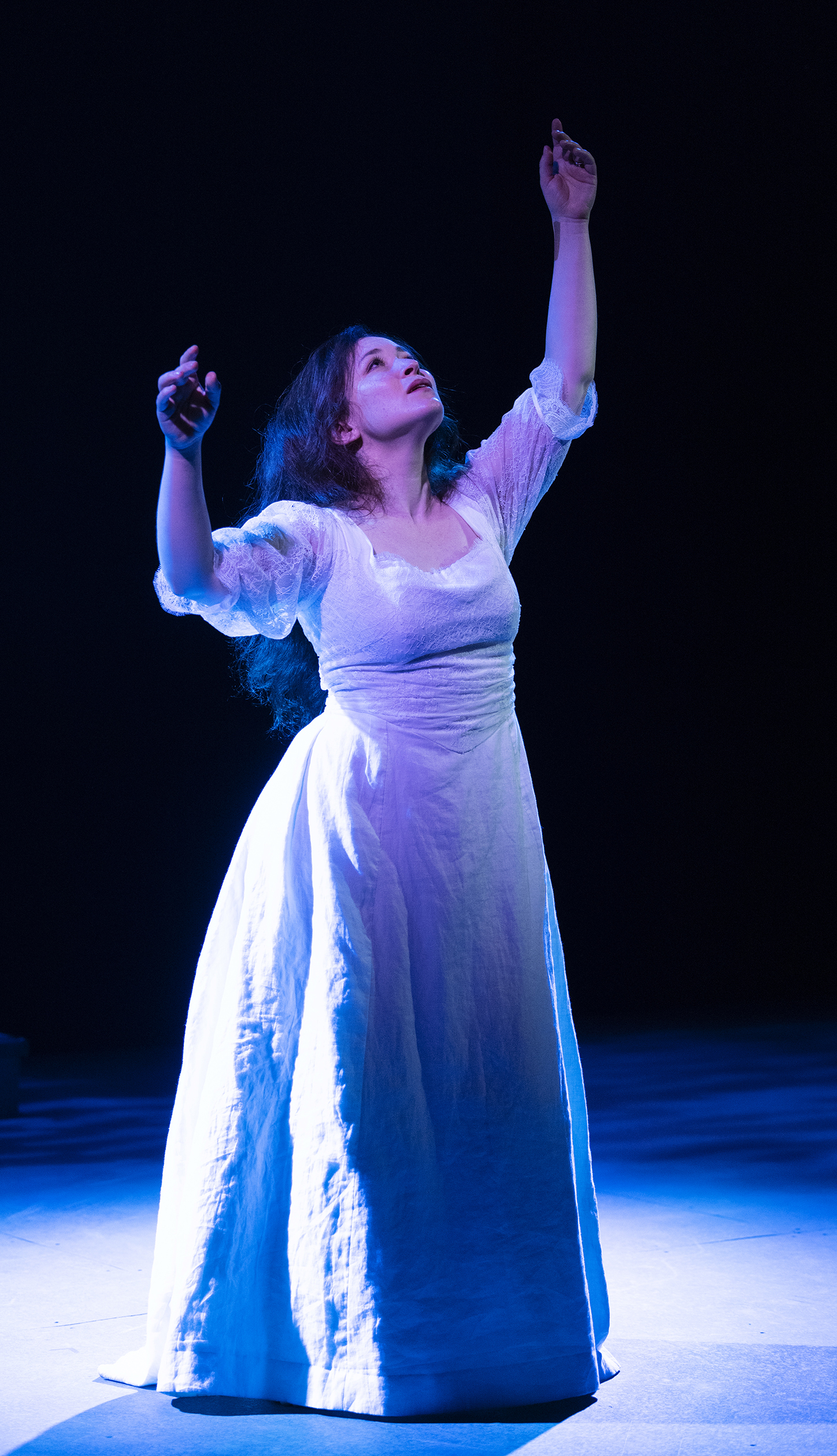
The Rogue Theatre in Tucson, Arizona, USA, performed a new production of Kate Chopin’s The Awakening in September 2021.
The novel was adapted to the stage by Christopher Johnson. The production was directed by Christopher Johnson, with music direction by Russell Ronnebaum. The production sponsors were Betsey Parlato and David Zucker.
The role of Edna Pontellier was played by Bryn Booth, and that of Robert Lebrun by Hunter Hnat.
Others in the cast:
Alcée Arobin—Christopher Johnson
Monsieur Ratignolle—Joseph McGrath
Mademoiselle Reisz—Cynthia Meier
Victor Lebrun—Christopher Pankratz
Adèle Ratignolle—Carley Elizabeth Preston
Léonce Pontellier—Aaron Shand
Madame Lebrun—Teri Lee Thomas
The production opened on September 9, 2021, and closed on September 26, 2021.
You can hear writer and director Christopher Johnson discuss the production and preview a few moments from it on the Rogue Theatre’s production website’s video.
Database of Seven Million University Syllabi Shows That in English Literature Courses Kate Chopin’s “The Story of an Hour” and The Awakening are Widely Assigned Readings

The Open Syllabus Project at Columbia University, which tracks seven million on-line syllabi from universities around the world, lists Kate Chopin’s “The Story of an Hour” as the second most-often-assigned American short story (after “The Yellow Wallpaper”) in university “English literature” classes (classes about literature from any country that is written in English or translated into English) .
Kate Chopin’s The Awakening is listed as the fifth most-often-assigned American novel (after The Great Gatsby, Beloved, Their Eyes Were Watching God, and Invisible Man).
Kate Chopin is the only American to have two literary works listed among the 50 most-often-assigned items. Two British writers also have two works listed: William Shakespeare (Hamlet and The Tempest) and Jonathan Swift (“A Modest Proposal” and Gulliver’s Travels).
To see the Open Syllabus Project list, choose Fields and then English Literature. If you scroll down after the first page, you can count the 100 or 1000 most-often-assigned items.
To be sure, it is difficult, perhaps impossible, for anybody to know exactly how popular any classic work of fiction is at any given moment. This database does not tell us everything. It says nothing, for example, about what high school teachers are assigning or what book clubs are reading or what paperback sales or library data might tell us if it were fully available. But, along with items we post on this and other News pages, it’s interesting.
“Such data has many uses,” the scholars working on the database argue in a New York Times article. “For academics, for example, it offers a window onto something they generally know very little about: how widely their work is read.”
They add “an important caveat about the Syllabus Explorer results: They reflect the collection of syllabuses that we have gathered so far, which is large enough to give interesting results but far from complete. It is a work in progress on many levels, and one that depends on a culture of open bibliographic data-sharing in the academy.”
You can read the article about the Open Syllabus Project. It was written by Joe Karaganis and David McClure. It appears in the New York Times on January 24, 2016.
The Open Syllabus database is continually updated, so the rankings we report here may change. And the database does not document other ways of measuring the comparative popularity of literary texts or the availability of those texts in translations into other languages.
Grand Isle, The Setting for The Awakening, Damaged by Hurricane Ida
CNN on September 1, 2021, reported that Hurricane Ida seriously damaged Grand Isle, the setting of Kate Chopin’s 1899 novel, The Awakening.
“Grand Isle, Louisiana’s last remaining inhabited barrier island at the southern tip of the state, bore the brunt of Hurricane Ida and was devastated by the Category 4 storm’s high winds, rain and storm surge,” CNN wrote:
“Even before Ida, the narrow isle has been increasingly under threat due to rising sea levels and sinking land. Located in the Gulf of Mexico, it had an estimated 2020 population of just over 1,400 people, according to the US Census. Grand Isle is largely known for its beaches and particular habitat, known as a Chenier Plain, that makes it a hot spot for fishing, migratory birds and other wildlife.
Last year, the New York Times named it to its “52 Places to go in 2020,” saying it was “hauntingly beautiful” and “may soon vanish.”Ida could hasten that vanishing. With winds of 150 mph, the Category 4 storm made landfall Sunday near Port Fourchon, about 10 miles southeast of Grand Isle. The storm’s hurricane-force winds extended 50 miles from the center.”
The New York Times published an article on the devastation on September 5, 2021: “On Grand Isle, a Fragile Spot Off Louisiana, Vast Damage.
A New Edition of Kate Chopin’s Short Stories Translated into French
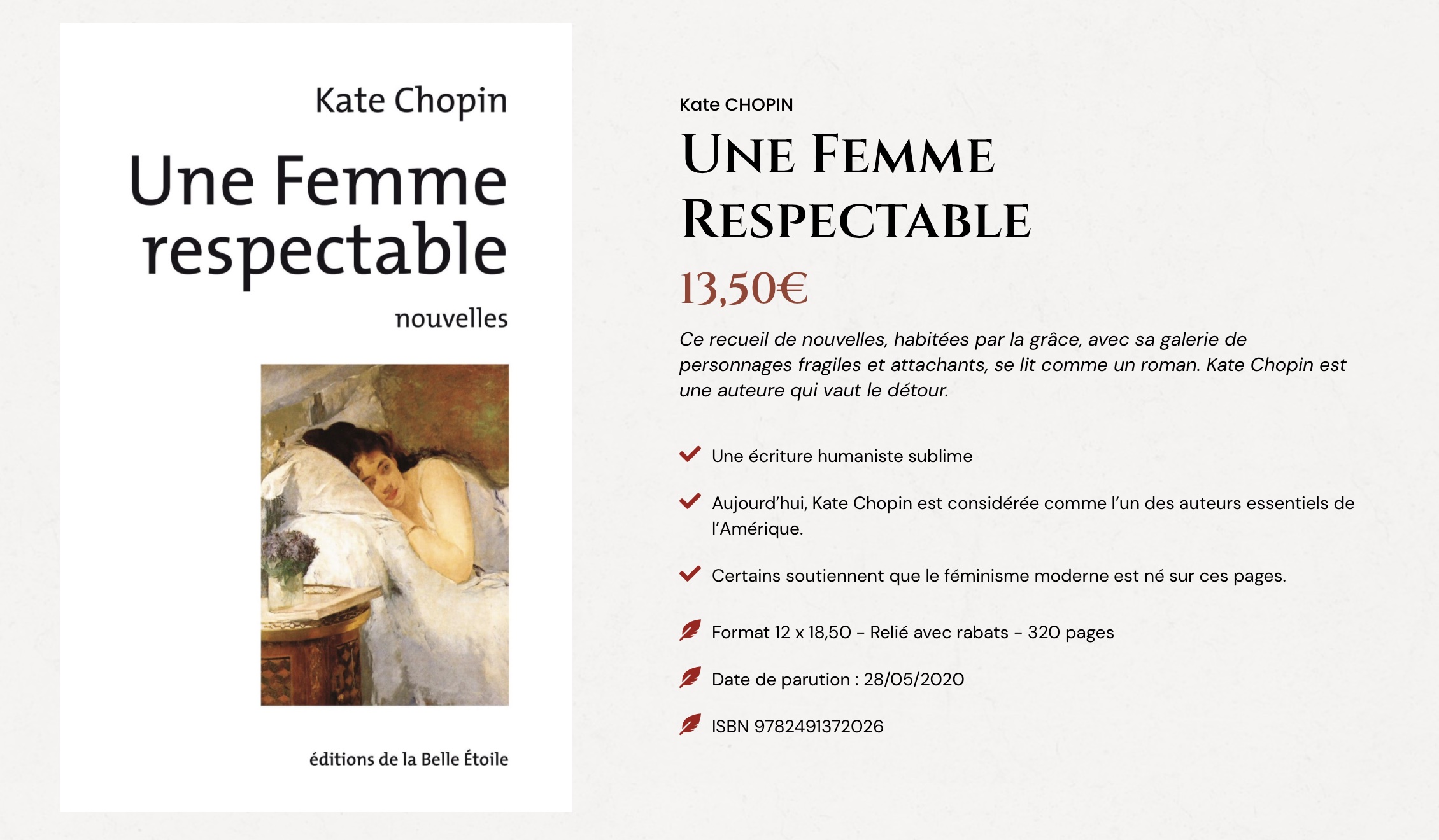
Editions de la Belle Etoile has published Une femme respectable, a collection of 25 short stories by Kate Chopin translated into French.
Philippe GUYOT-JEANNIN at Editions de la Belle Etoile writes: “We have chosen the most beautiful stories in our opinion among those that had already been translated into French (most that were out of print). And we have made available for the first time translations of three other stories: ‘A Shameful Affair,’ ‘Ozème’s Holiday,’ and ‘A December Day in Dixie.’
“We consider this book to be the essential French reference book on the short stories of Kate Chopin.”
The short stories in the collection:
L’enfant de Désirée
Visite à Avoyelles
L’histoire d’Elisabeth Stock
Le médaillon
La guérison
Les lilas
À l’amie de ma jeunesse à Kitty
Le rêve d’une heure
Le divorce de Mme Célestin
Une femme respectable
Au bal Cajun
Azélie
Une paire de bas de soie
Les lettres
Une affaire honteuse
Deux étés, deux âmes
Le sorcier de Gettysburg
La raison de Mme Mobry
Les vacances d’Ozème
Les figues mûres
Une suggestion hypnotique
Au-delà du bayou
Un jour de décembre à Dixie
La marraine
Le baiser
Fedora
L’aigle blanc
L’orage (Une suite d’« Au bal cajun »)
A New Edition of Kate Chopin’s The Awakening and Selected Short Stories
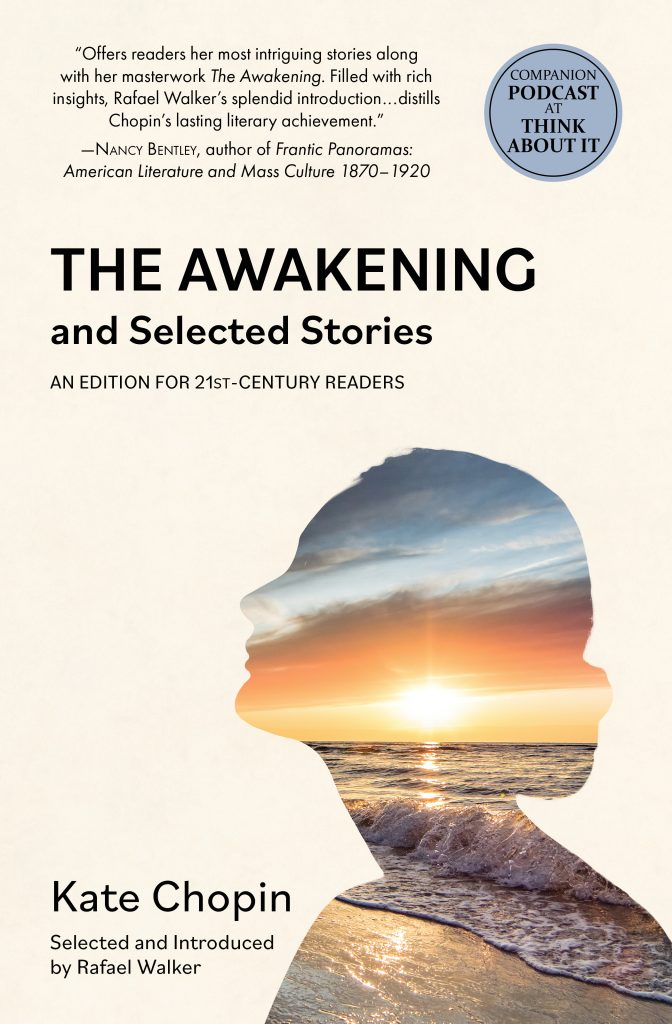
Warbler Press, a New York-based independent publisher, has released Kate Chopin’s The Awakening and Selected Short Stories edited by Rafael Walker. The publisher’s announcement notes: “In this annotated, modernized edition—specially tailored for twenty-first-century readers—Rafael Walker highlights Chopin’s awareness of the privileged class’s exploitation of the the less-privileged, and includes a number of neglected stories that foreground Chopin’s feminist proclivities.”
Rafael Walker is Assistant Professor of English at Baruch College, City University of New York.
Michèle LaRue Performed Chopin’s “A Pair of Silk Stockings” at the Metropolitan Virtual Playhouse
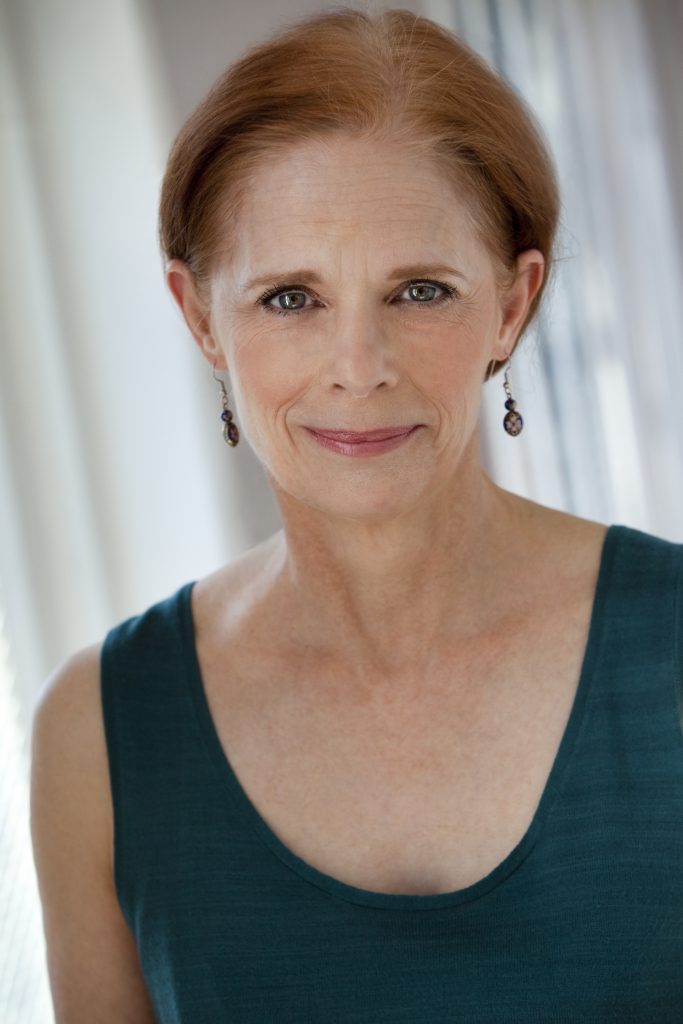
Actress Michèle LaRue performed Kate Chopin’s “A Pair of Silk Stockings” and O. Henry’s “The Ratskeller and the Rose”—stories of wishes and their consequences—through Internet streaming at the Metropolitan Virtual Playhouse in New York City from May 1 to 5, 2021.
Ms.LaRue tours nationally with her one-woman performances. She has performed at Chicago’s Newberry Library; Washington, D.C.’s National Portrait Gallery; international conferences of the American Quilter’s Society; joint conventions of the Popular and American Culture associations; and the international conference of the Charlotte Perkins Gilman Society. Sponsors range from schools to military bases; historical societies and libraries to women’s clubs and senior communities.
Susan Koppelman, the editor of several volumes of American women’s short stories, writes to Ms. LaRue: “I wish you could come into every literature classroom, perform at every library, be on the stage in a theater in every town, helping people connect with that wonderful literature, teaching people to listen to the sounds of wonderful sentences.”
You can learn more about Michèle LaRue’s work on her website and you can see her full performance schedule.
Regret, a Short Film Based on Kate Chopin’s Story
Ripe Figs Productions is proud to present three short films on the Kate Chopin International Society website. Based on Kate Chopin’s short stories, “Regret,” “Ripe Figs” and “Dr. Chevalier’s Lie,” these award-winning short films are available online here for the first time.
In this adaptation of “Regret,” Mamzelle is a successful, self-made farmer in a small Louisiana community. Though Big Agriculture has driven more and more of her colleagues off their land, Mamzelle has remained committed to her farm and has often used her success to help her less fortunate neighbors. Middle-aged and making no secret of her lesbian identity, Mamzelle is in a loving and stable (if long-distance) relationship. In fact, she has found only an uneasy acceptance among her neighbors, despite her active generosity. But even this arrangement is challenged when a young woman whom Mamzelle has known since childhood suddenly asks a favor: to care for her two small children in an emergency. The consequences force Mamzelle to reckon with the meaning of her life’s path, what she has achieved and what she has unwittingly sacrificed.
Two Other Short Films Based on Kate Chopin Stories
Ripe Figs Productions is proud to present two of its new short films here on the Kate Chopin International Society website. Based on Kate Chopin’s short stories, “Ripe Figs” and “Dr. Chevalier’s Lie,” these award-winning short films are available online here for the first time.
Ripe Figs (2017) [9 minutes]
Based on Chopin’s one-page short story (1892), this film follows the interactions of a young Creole woman and her godmother in nineteenth-century Louisiana, as they quietly struggle through the older woman’s resistance to the younger woman’s maturation. Chopin’s metaphoric depictions of growth and the sensuality of seasonal change are echoed in the lush photography and imaginative casting. It has been featured in the New Orleans Film Festival and others, winning several Southern Shorts Awards, including acting, editing, directing, music and cinemaphotography.
Dr. Chevalier’s Lie (2017) [5 minutes]
Loosely based on Kate Chopin’s 1892 sketch, this short film observes the conflict of a coroner who must document the death of a young bipolar woman, whom his office was charged to protect. With the SayHerName campaign as additional inspiration, the film was featured in the Vero Beach Wine and Film Festival and others.
At other places on this website you can find more information about the Regret film, the Ripe Figs film and the Dr. Chevalier’s Lie film.
The Awakening Published in Iran
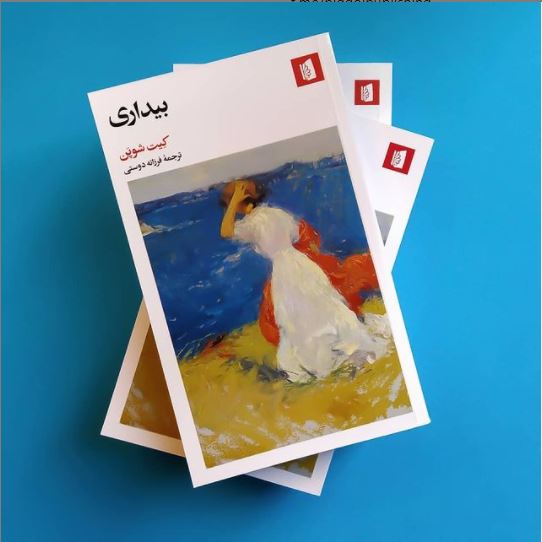
Farzaneh Doosti in Tehran sends us this message:
“I am an Iran-based university lecturer, researcher and translator holding a PhD in English Literature. I have been teaching Chopin’s stories for years and now I am overjoyed to inform you that my translation of Kate Chopin’s The Awakening is now available and released by one of the bestselling publishers in Iran: Bidgol Publishing.
New Ways to Hear Kate Chopin’s Works Read, Performed, or Discussed
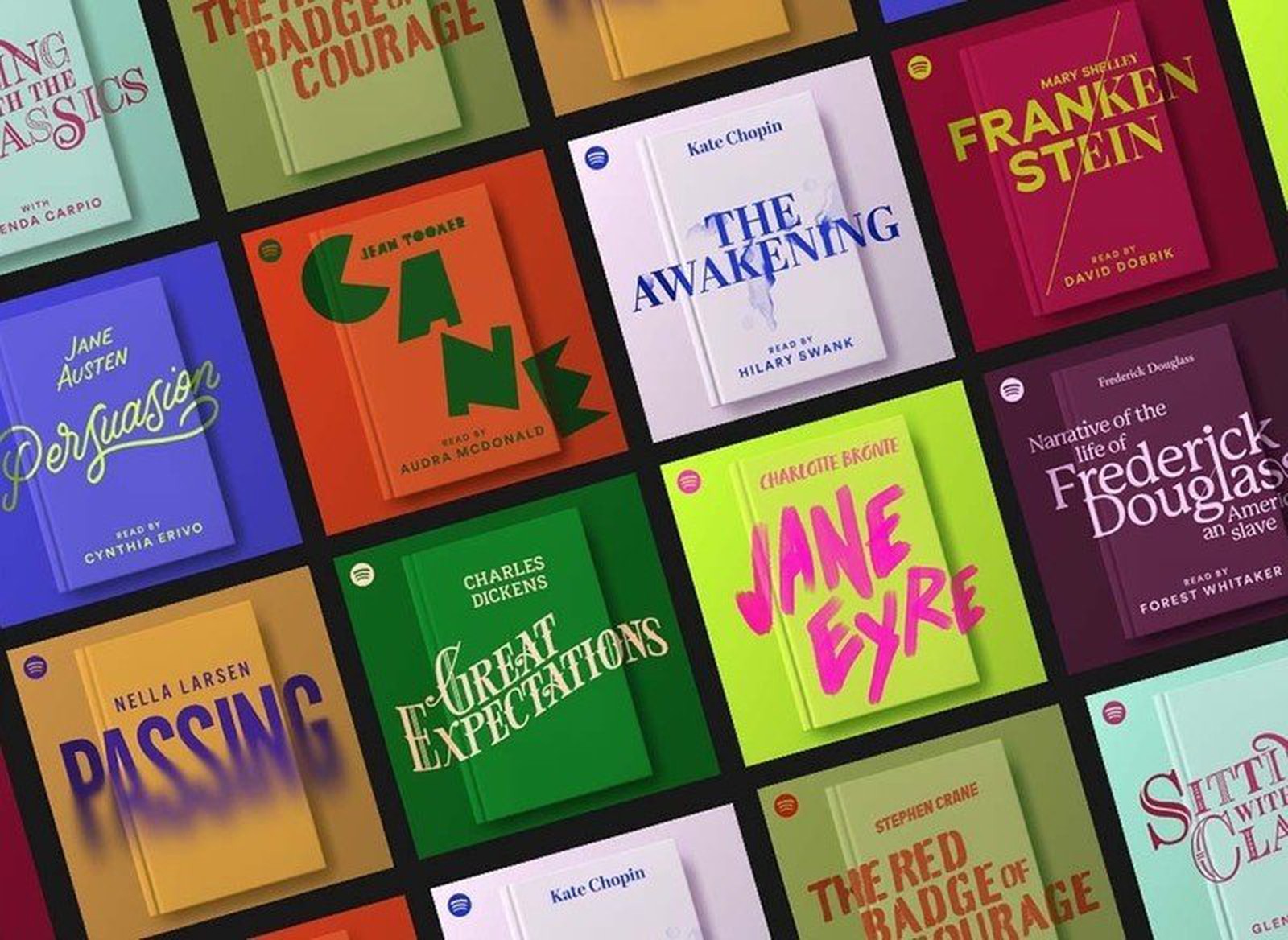
The Hollywood Reporter announces that “Nine classic audiobooks—including Cynthia Erivo’s narration of Persuasion and Hilary Swank’s reading of The Awakening—are now available on Spotify. . . .
“The nine audiobooks that are now available are all part of the public domain, but the original recordings are exclusive to the streaming platform. David Dobrik narrates Mary Shelley’s Frankenstein; Forest Whitaker reads Frederick Douglass memoir Narrative of the Life of Frederick Douglass, an American Slave; Hilary Swank narrates The Awakening by Kate Chopin; and Cynthia Erivo reads Jane Austen’s Persuasion.”
And Chopin scholar Rafael Walker tells us, “I’m writing to alert you of a podcast episode recently recorded about Kate Chopin. Professor Uli Baer (New York University) invited me to discuss Chopin for his podcast series Think about It, which has become among the most popular literary podcast purveyors on the web. You can listen on You Tube or Spotify.”
All of Kate Chopin’s Short Stories in Spanish
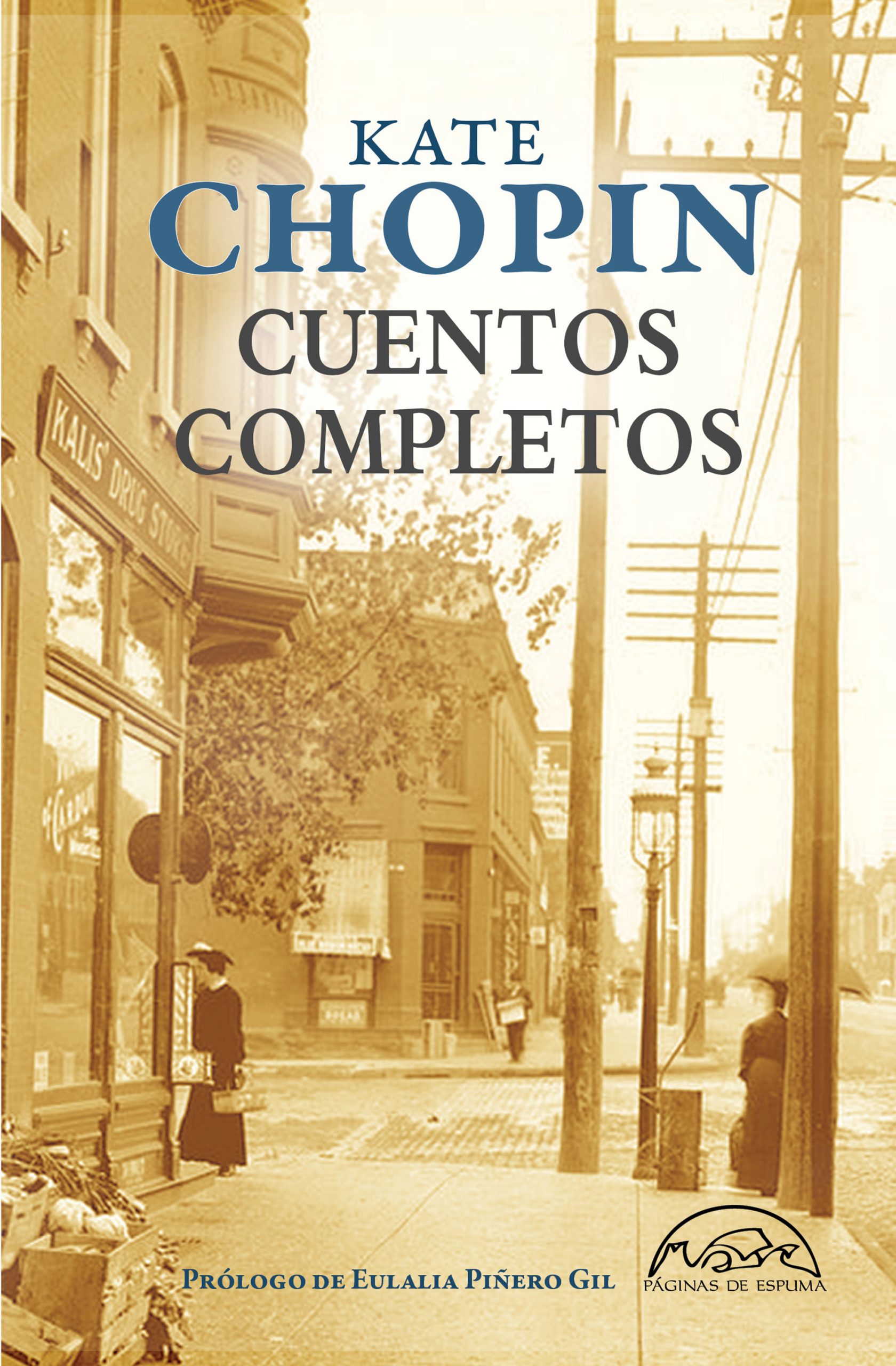
A friend in Madrid tells us, “Kate Chopin’s complete short stories, Cuentos Completos, have been published in Spanish for the first time by Páginas de Espuma Publishing House (2020). The publisher and the translation team—Emma Cotro, Maite Fernández Estañán, Eva Gallud, and Juan Carlos García—deserve credit for their excellent work.
“This version of Chopin’s short stories in Spanish includes a table of contents, an index, and a prologue by Kate Chopin scholar and translator Eulalia Piñero Gil.”
Eulalia Piñero Gil is Professor of American Literature and Gender Studies of the Universidad Autónoma of Madrid, Spain, where she teaches American Literature courses. She is the author of the translation and critical edition of Kate Chopin’s The Awakening/El despertar (2012). She has co-edited Visions of Canada Approaching the Millennium (1999),Voices and Images of Women in 20th Century Theater. Anglo-American Women Playwrights (2002), Women and Art: Visions of Change and Social Development (2010) and Breaking a Sea of Silence: Interdisciplinary Reflections on Gender Violence (2013). She has authored several peer-reviewed articles on Kate Chopin and other American women writers. She is the President of the Spanish Association for American Studies (SAAS).She edits and updates this website’s bibliography page in Spanish.
Kate Chopin Mentioned at US Supreme Court Confirmation Hearing
Senator Kennedy [John Neely Kennedy, Republican of Louisiana]: . . . . I read somewhere that you are an admirer of Kate Chopin.
Amy Coney Barrett: Oh, yeah.
Senator Kennedy: Tell us who she was and why you admire her?
Amy Coney Barrett: Well, when I was in college, back in my English major days—
Senator Kennedy: She was a Louisiana writer.
Amy Coney Barrett: That is, that’s right. She wrote a book focused on Louisiana and a woman who comes to Louisiana from… Now I can’t remember what part of the South she was from. And talked about her becoming accustomed to New Orleans and its particular culture. I very much appreciated that, especially as a New Orleanean. I thought it was an insightful look into what the history of New Orleans is like. And my family, my great, great grandparents, came to New Orleans from France. And my family has been in New Orleans for generations. And so, its history is important to me.
Senator Kennedy: Ms. Chopin had a very feminist point of view too, did she not?
Amy Coney Barrett: She did, so the awakening is the—
Senator Kennedy: So before her time, yeah.
Amy Coney Barrett: Mm-hmm (affirmative), she did.
Kate Chopin and Catholicism
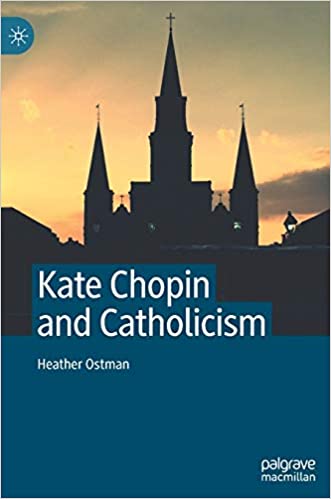
Kate Chopin and Catholicism, a new book by Heather Ostman, has been published by Palgrave Macmillan in London. The publisher’s website describes the book: “This book explores the Catholic aesthetic and mystical dimensions in Kate Chopin’s fiction within the context of an evolving American Catholicism in the late nineteenth and early twentieth centuries. Through a close reading of her novels and numerous short stories, Kate Chopin and Catholicism looks at the ways Chopin represented Catholicism in her work as a literary device that served on multiple levels: as an aesthetic within local color depictions of Louisiana, as a trope for illuminating the tensions surrounding nineteenth-century women’s struggles for autonomy, as a critique of the Catholic dogma that subordinated authenticity and physical and emotional pleasure, and as it pointed to the distinction between religious doctrine and mystical experience, and enabled the articulation of spirituality beyond the context of the Church. This book reveals Chopin to be not only a literary visionary but a writer who saw divinity in the natural world.”
Heather Ostman is president of the Kate Chopin International Society and the editor of two books of Chopin scholarship.
A New Introduction to The Awakening
Penguin Random House, according to an essay in the New York Times, is issuing a hardcover edition of Kate Chopin’s The Awakening with an introduction by Claire Vaye Watkins.
The Times essay is adapted from Watkins’s introduction. The essay’s headline describes the book as “The Classic Novel That Saw Pleasure as a Path to Freedom.”
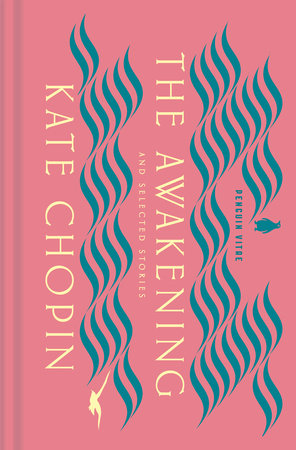
The paperback Penguin Classics edition of Chopin’s novel has been popular among teachers, scholars, students, and others since its appearance in 1984. Its introduction, “The Second Coming of Aphrodite,” written by celebrated feminist literary critic Sandra M. Gilbert, has long been one of the most influential essays about the novel.
Claire Vaye Watkins is the author of Battleborn (2012), a collection of short stories, and Gold Fame Citrus (2015), a novel.
The new edition of The Awakening will be available on February 25, 2020.
An Awakening Translation into Icelandic
Jón Karl Helgason tells us that he is the translator of The Awakening into Icelandic: Sálin vaknar.
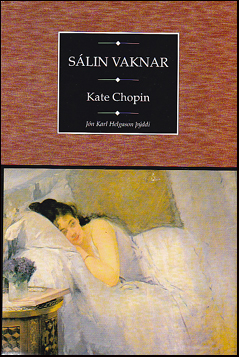
“It was my first translation from English”, he reports, “but I have also translated books by Dan Brown, Paul Auster, Julian Barnes and others. I started the Kate Chopin work as a part of my Ph.D. studies in Comparative Literature at the University of Massachusetts in late 1980s. The translation was read in an Icelandic National Broadcasting program in 1990 and then finally published (a revised version) in 1997.”
A Christmas Opera Based on Chopin’s “The Story of an Hour”
In December, 2019, the Gramercy Opera in New York at Brooklyn’s Montauk Club presented an opera “Story of an Hour.” The opera company’s announcement read:
“Based on the 1894 short story by Kate Chopin, in a classic operetta-esque style, ‘Story of an Hour’ is a one-act opera set in the 1800s during the Christmas season. It follows the story of a fatal train accident and the consequences it has on two young women—one of whose husbands is believed to have been on the train.”

“Story of an Hour” was the winner of the inaugural Salzman-Gramercy Opera Advancement Prize. The music was written by Michael Valenti and the libretto by Kleban- and Stacey Luftig. The cast included Kate Fruchterman, Sable Strout, Aaron Theno, and Jay Lucas Chacon.
The opera played on Dec. 13 and 14, 2019. You can see an excerpt of the opera.
Scott Little, a student at Kent State University in Ohio, created an opera based on” The Story of an Hour” in 2018.
كيت شوبان
A Third Kate Chopin Short Story in Arabic
We are grateful to hear from Professor Lina Ibrahim at Bayan University College, Muscat, Sultanate of Oman, who tells us that she has translated “Regret,” Kate Chopin’s short story, into Arabic. It is published in al-adab.com, an online literary magazine. You can read “Regret” and Lina Ibrahim’s earlier translations, “The Story of an Hour” and “Désirée’s Baby,” on the al-adab.com website.
We asked Professor Ibrahim why she chose to translate these three stories. She replied:
“Each story struck a chord with me. The three women: Désirée, Louise, and Mamzelle Aurélie represent three types of women caught up in situations that other women can relate to until the end of time.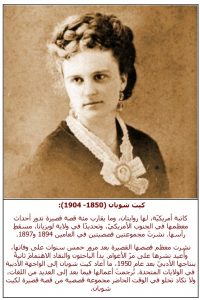
“Désirée faces what so many women face: If there’s a problem, blame it on the woman. Her husband, recognizing the color of his son, is unable to blame anyone but his young beautiful wife. As a man, he thinks of himself as infallible and believes the woman must be responsible for a sin and must be punished (for a crime, it turns out, she did not commit).
“Louise represents miserable women caught in a traditional marriage. They have everything, yet they aren’t happy. The moment of revelation that comes to Louise while grieving the death of her husband brings with it a state of ecstasy. Now she is free, now she understands that her marriage was a prison from which she is finally released. I do believe that many women nowadays find themselves in similar marriages.
“Mamzelle Aurélie is a spinster by choice. She realizes too late that the outcome of her decision to not marry is a life of loneliness. What I relate to in the story is her realization that the children made her aware of what she was missing—not the absence of a male partner, not marriage as an institution, but the joy that comes with having children, connecting with and taking care of them. Here lies the regret of her choice.”
Oprah Magazine Lists The Awakening as One of the “25 Books Every Woman Should Read”
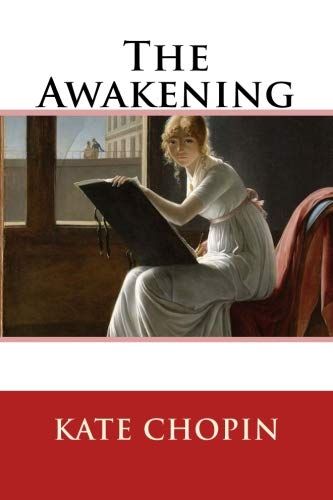
An article in O, the Oprah Magazine, dated Aug 15, 2019, lists Kate Chopin’s The Awakening as one of the 25 books that every woman should read. The article begins, “Women may not yet run the world but we do make for some of the most intriguing characters. Who are some of the most compelling all-time heroines—real-life or fictional—ever to captivate our readerly imaginations? O’s Books Editor Leigh Haber, and Assistant Editor Michelle Hart offer their take on some of the best books every woman should read, a mix of classic and contemporary works that satisfy the bibliophile’s desire for total immersion.”
The article adds, “It’s impossible to fathom the sheer number of women—young, old, or in-between—whose own feminist awakenings were spurred by Kate Chopin’s indisputable classic, The ballad of Edna Pontellier sings of the caged-bird claustrophobia caused by societal expectations, and laments the limits of acceptable desires.”
Modern Library Republishes The Awakening with an Introduction by Carmen Maria Machado
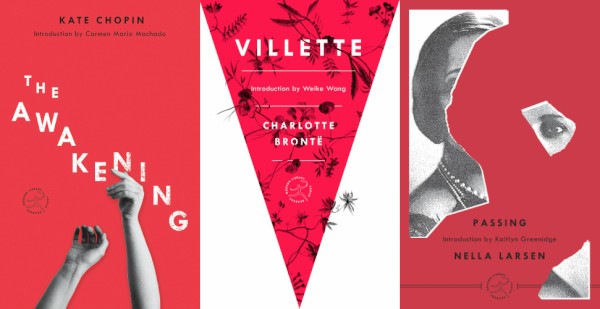
Publisher’s Weekly writes: “The Modern Library will launch a new trade paperback series, Modern Library Torchbearers, this May [2019]. The series, the publisher said, will ‘honor a more inclusive vision of classic books’ by ‘recognizing women who wrote on their own terms, with boldness, creativity, and a spirit of resistance.’
“The books, all previously published, will be repackaged, and each will be introduced by a contemporary woman writer. The inaugural list for the series features . . . The Awakening by Kate Chopin, with an introduction by Carmen Maria Machado (June 18)” along with five other titles.
An earlier (1981) Modern Library version of The Awakening included an influential introduction by Nina Baym.
An Interpretation of Kate Chopin’s The Awakening Through Abstract Paintings
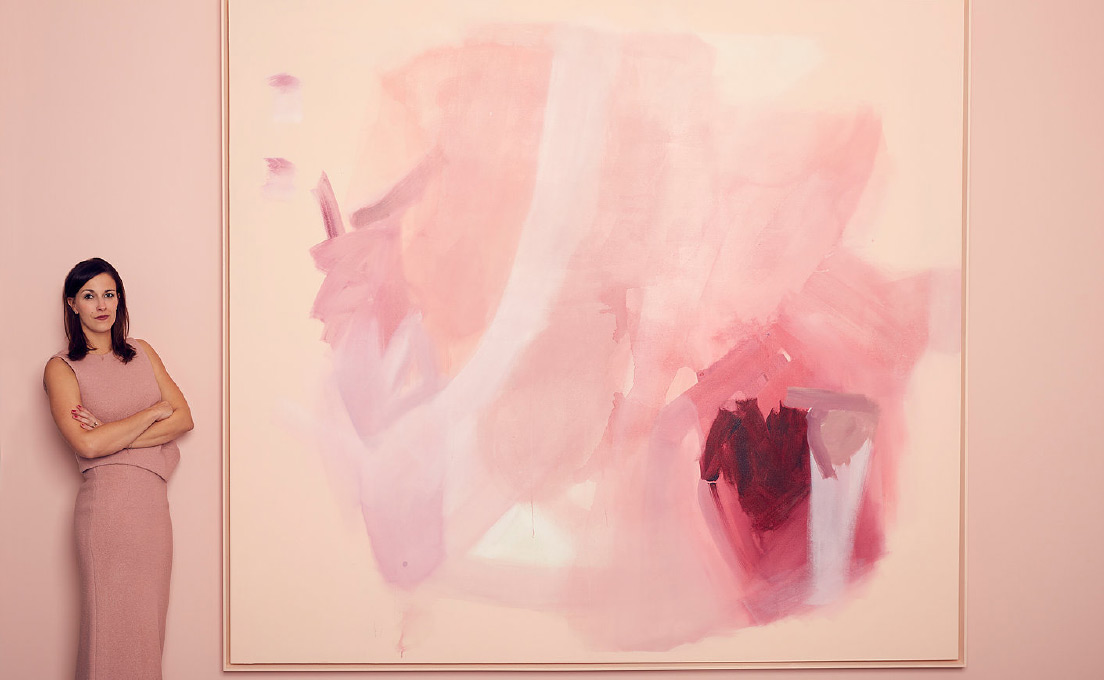
In Austin, Texas, austin360 describes an exhibition of new paintings by Mallory Page:
“’A Ponderous Weight (Why did I not discover before that it was nothing?).’ This Wally Workman Gallery exhibition features a new body of large-scale abstract works, serving as the second installation of artist Mallory Page’s several-part series, ‘Ponderous Weight,’ an interpretation of Kate Chopin’s The Awakening. She provides a meditation of sorts about the antagonistic impulses that define Chopin’s heroine, among other themes.” The exhibition ran in April 2019. You can see a virtual tour of the exhibition.
The Page website adds, “ Mallory Page is a New Orleans-based artist specializing in large-scale, thinly-layered abstract paintings. . . . Page was raised in Lafayette, Louisiana, a region with a vibrant, often mystical, culture and distinctive geographical landscape. Her work subtly and abstractly engages with this heritage, as well as with the questions that arise from acute self-awareness—i.e. the position of an independent woman and artist within a more traditional social terrain.”
The Awakening for Historians
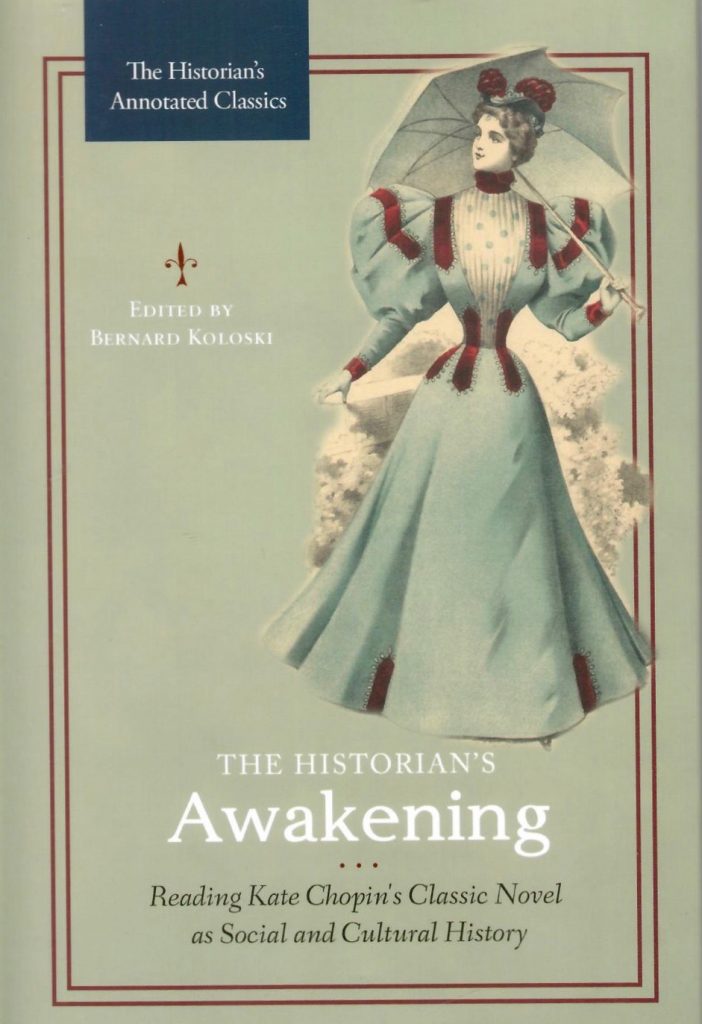
Praeger has published The Historian’s Awakening: Reading Kate Chopin’s Classic Novel as Social and Cultural History (2019), edited by Bernard Koloski. The book is aimed at faculty and students reading Kate Chopin’s novel in its historical context.
It includes a copy of the novel with 200 annotations focused on historical elements. It includes also a preface for teachers, a chronology of historical events relevant to the novel, a guide for pronouncing the names of the novel’s characters, an introductory chapter about Kate Chopin’s life, and a chapter about the historical context of The Awakening, with an emphasis on nineteenth-century social and cultural realities of class, gender, ethnicity, and modernity. At the end is an extensive bibliography and index.
The Awakening in Catalan
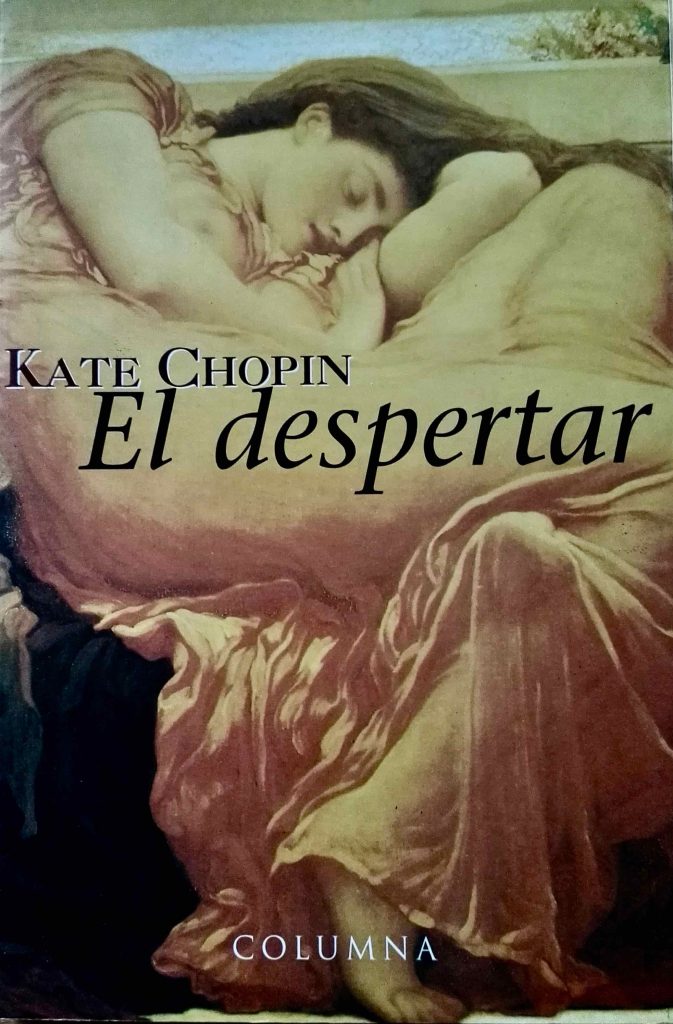
Gabriela Paco tells us that The Awakening has been translated into Catalan and sends us this cover photograph. The novel was translated by Ernest Riera i Arbussa and first published in Barcelona by Columna in 1997. The translation is titled El despertar.
That brings to 23 the number of languages into which the novel as been translated. We are grateful to Gabriela Paco for creating the photograph and sending us the information.
Translations that we have been able to document so far were into Albanian, Arabic, Catalan, Chinese, Czech, Danish, Dutch, French, Galician, German, Hungarian, Icelandic, Italian, Japanese, Korean, Malayalam, Persian (Farsi), Polish, Portuguese, Serbian, Spanish, Swedish, Turkish, and Vietnamese..
Kate Chopin Scholar Thomas Bonner’s New Book
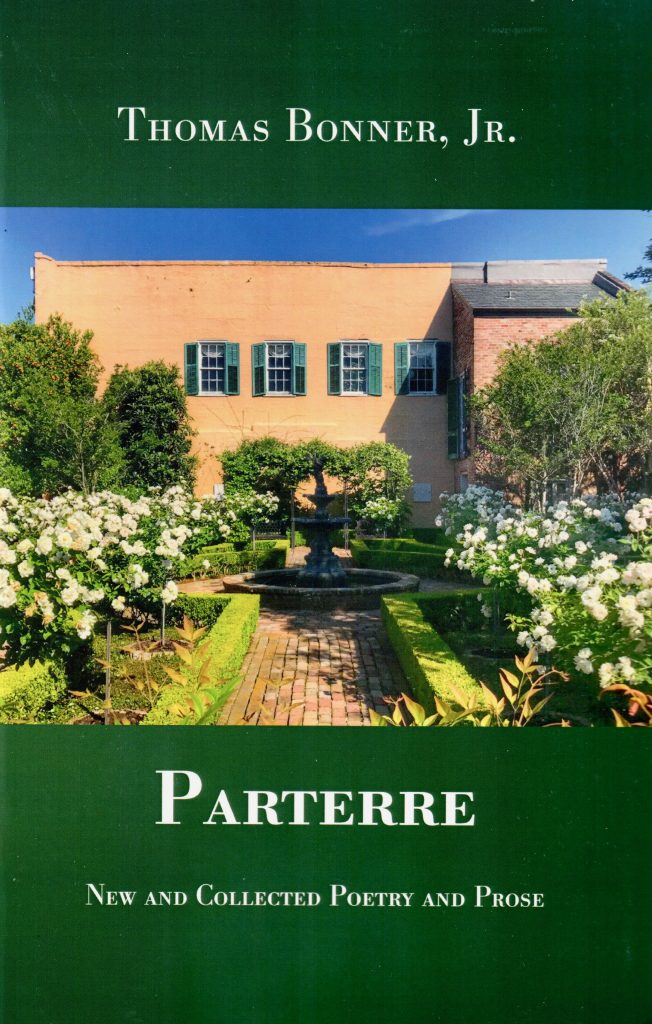
Parterre by Kate Chopin scholar Thomas Bonner Jr. has been published by Xavier Review Press. The book contains Bonner’s essay “Women, Writers, and New Orleans: A View from 1999,” along with an essay about the publication history of “The Story of an Hour” and one about Chopin property transfers in New Orleans in the 1870s. It contains also other essays, eighteen poems, and fiction, including “Léonce,” Bonner’s short story about Edna Pontellier’s husband on learning about Edna’s disappearance in the sea.
Translator Camille Vourc’h Spoke in New Orleans
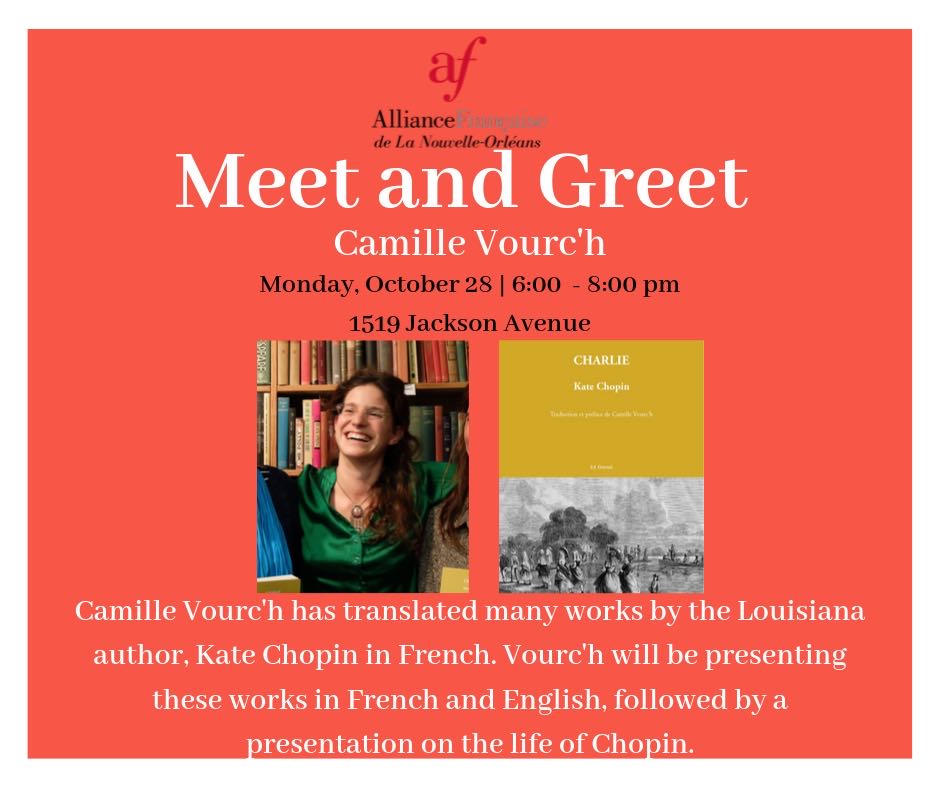
Kate Chopin in Afghanistan
Ramin Anwari, a Persian-speaking writer in Afghanistan, tells us that his translation of Kate Chopin’s The Awakening into Persian (Farsi) is now on sale in Afghanistan.
The discounted cost per copy in the Kabul market is 200 Afghan Afghani, he says, which is around $4 in United States currency.
The publisher of the book is called “Nashr-e-Wazha” or “Wazha Publication House,” and it is a family-run private entity. It was founded two years ago and has so far published around 30 titles independently, and another 40-plus titles in partnership with some universities.
The 2018 Third Norton Critical Edition of The Awakening
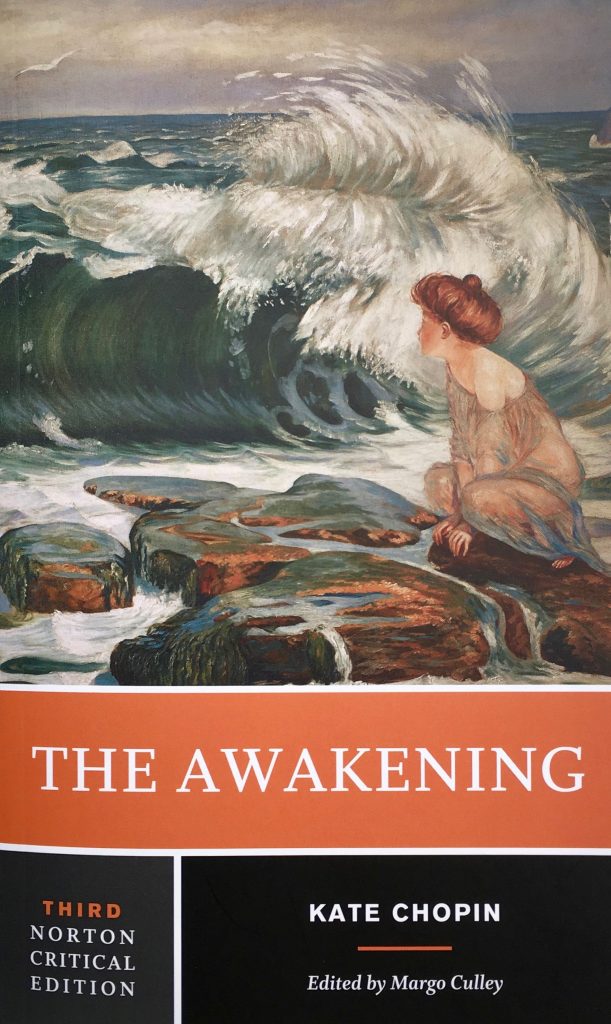
For decades, teachers and scholars have depended upon the Norton Critical Edition of The Awakening. The volume, first published in 1976 and updated in 1994, sold hundreds of thousands of copies and played an important part in establishing Kate Chopin as an essential American author.
Margo Culley’s Third (2018) Norton Critical Edition of The Awakening is now available. It includes excerpts from nine critical essays published since 2000 and from nineteen published before the twenty-first century. It contains updated bibliographies, and it retains its authoritative text, its footnotes, its selections from 1899 reviews, and over two dozen excerpts describing biographical and historical contexts.
The new edition of the Norton will be welcomed by readers in the United States and abroad. As Margo Culley writes in her preface to the volume, Kate Chopin “would be astonished” with the world-wide success of her novel.
A 2017 Film Based on Kate Chopin’s Short Story “A Matter of Prejudice”
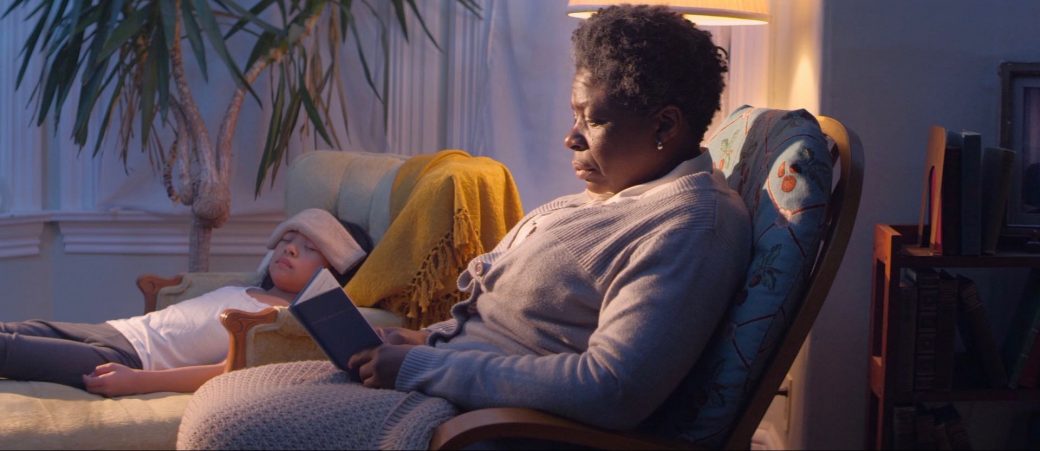
We received this message from writer, producer, and director Sandra Lince:
“As a first-time director, it’s with great enthusiasm that I write to tell you about short film I wrote and produced. Inspired by Kate Chopin’s 1893 short story of the same name, “A Matter of Prejudice” is a family’s tale of love and overcoming bias. This modern interpretation weaves in a contemporary parallel of prejudice a century later that proves poignantly relatable to today’s society.
“The hero of our story is an elderly French-speaking African immigrant named Madame Carambeau. Because of her religious beliefs and fears, she hasn’t spoken to her gay son in seven years, even though it pains her. Her mindset begins to change after a chance encounter with a sick little girl during a birthday party for her grandson, Gus. Sensitive to the struggles of the LGBTQ community, this bilingual tale shows what can happen when we simply open our hearts.”
You can view the film’s trailer.
Sandra Lince adds, “This past March we screened at the George Lindsey UNA Film Festival in Florence, Alabama, bringing home the Gold Lion for Best Professional Short Narrative. We also screened at Festival du PanAfricain in Cannes, France in April. In addition, this coming August we are scheduled to screen at the Black Harvest Film Festival at the Gene Siskel Film Center in Chicago. And we’ve applied to the New Orleans Film Festival and would love to screen there considering Kate Chopin’s connection to the region.”
We asked Ms. Lince how she first came across the short story:
“It is such a wonderful story, isn’t it? I came across it during college. I have a degree in English with an emphasis in creative writing and early on one of my writing teachers assigned The Awakening and a couple of shorts from the anthology A Matter of Prejudice and Other Stories. It’s true, “A Matter of Prejudice” itself was not assigned, but I devoured the entire book and it ended up being my favorite of the anthology. The little emotional punch in the gut you get when reading the surprise ending for the first time . . . the best! As a result, the story stuck with me over the years, and it was the first to pop in my head when I decided to adapt a short to direct.”
Of Special Significance: The First Translation of The Awakening into Danish
Keith Bergman at the Danish publisher Forlaget Hetland tells us that “we have published The Awakening for the first time in Danish. The translation was done by Henrik Torjusen, a PhD student from Oslo University.”
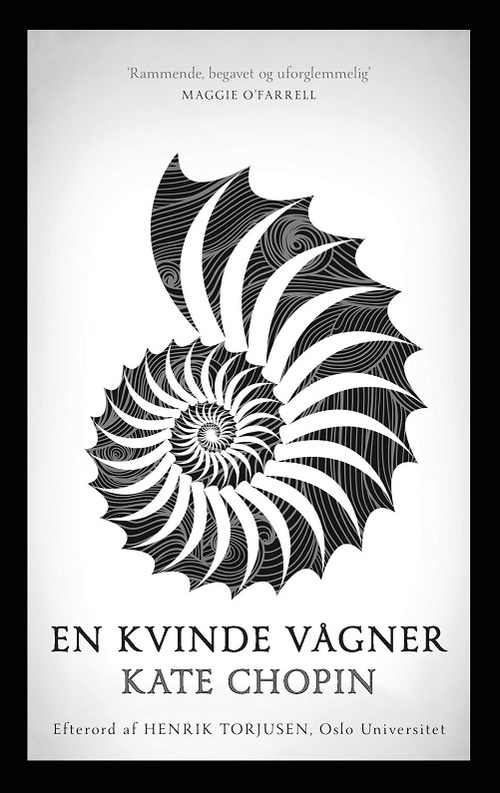
Oslo University has a special significance for Chopin readers, because it was Per Seyersted, formerly the Director of the American Studies Institute at the university, who in 1969 published Kate Chopin’s Complete Works—along with a new biography—and helped transform Kate Chopin into one of America’s essential authors.
Seyersted’s mother had been a “women’s rights leader in Norway,” his current biographer, Emily Toth, tells us. He had done a Master’s degree at Harvard University, where he wrote a paper about Chopin for Cyrille Arnavon, a visiting professor from Paris who had translated The Awakening into French in 1952.
Arnavon and Seyersted are central figures in the revival of Kate Chopin’s fiction.
“Hetland Books,” The publisher’s website says, “is the English name of the Copenhagen-based independent publishing house Forlaget Hetland. Hetland Books’ aim is to publish translated works from English to Danish.
“Our books often have a North Atlantic feel to them, reflecting the provenance of the publisher.
“Hetland Books takes its name from the point of the British Isles closest to the Kingdom of Denmark. Faroe, an Atlantic archipelago and part of the Kingdom of Denmark, is only 200Km north of the Shetland Islands. Their name for Shetland — is Hetland.”
Kate Chopin’s Novels and Short Stories Are Being Translated into Many Other Languages
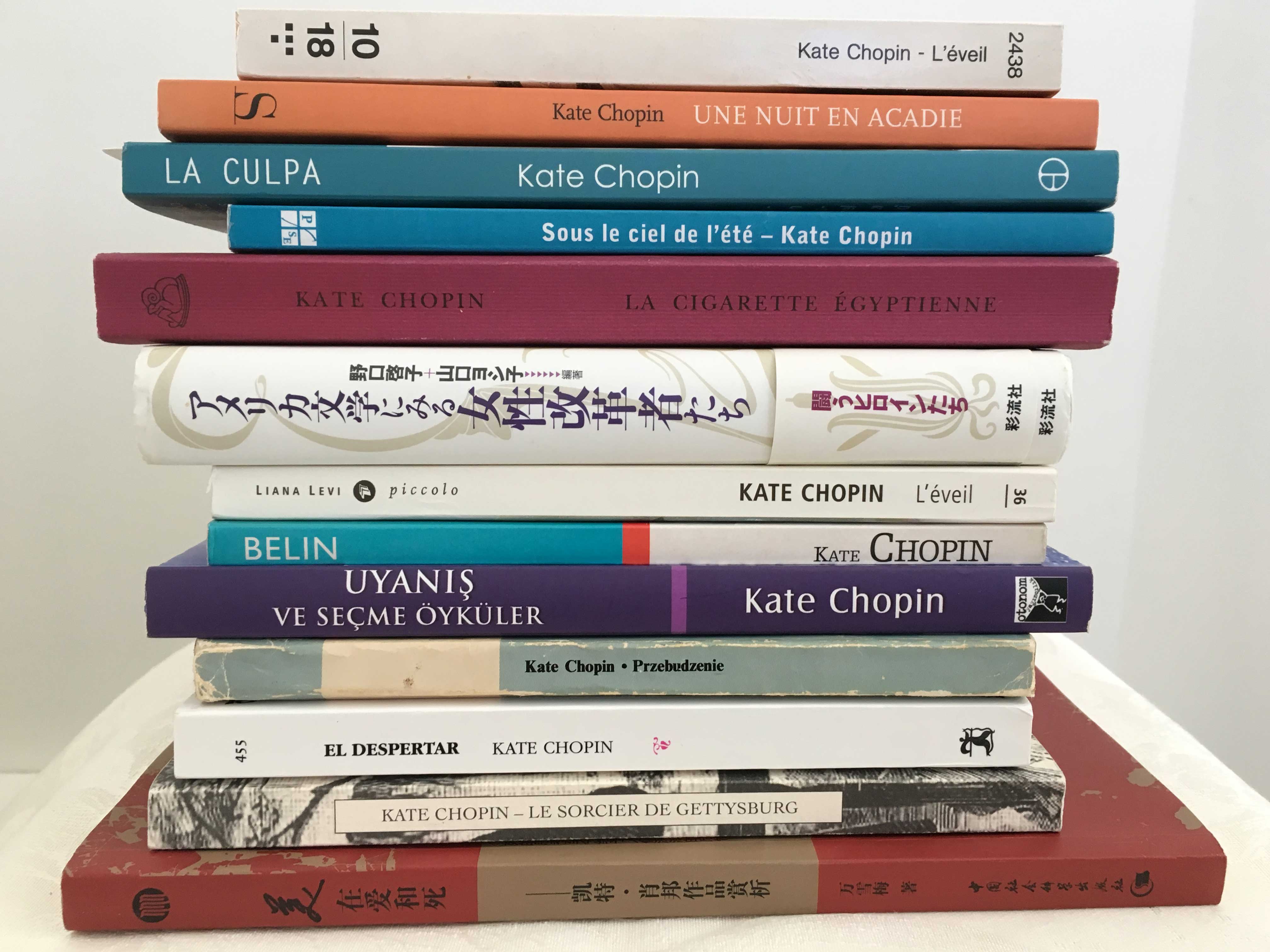
You can learn more about translations into Albanian, Arabic, Chinese, Czech, Danish, Dutch, French, Galician, German, Hungarian, Italian, Japanese, Korean, Malayalam, Persian (Farsi), Polish, Portuguese, Serbian, Spanish, Swedish, Turkish, and Vietnamese on our translations page.
“Dear Kate Chopin: A Graveside Chat with Your Biographer”: An Open Letter by Emily Toth
Kate Chopin’s biographer, Emily Toth, has published a 2016 Halloween monologue at the gravesite of Kate Chopin in St. Louis, Missouri.
“Dear Kate (may I?):
“I hope it’s all right to first-name you,” Toth writes, “since I’ve known you for most of my adult life. I’ve written your life story twice and spent over forty years on your literary career. (You spent only thirteen, 1889 to 1902.) I’ve pondered the mysteries in your writings and wondered, ‘What would Kate Chopin do?’

“I wish I could speak to you.
“Imagine that right now we’re having a picnic, a tête-à-tête, next to your gravestone in Calvary Cemetery in St. Louis,” Toth continues, describing and commenting on central moments in Kate Chopin’s life.
“I think I know how to ‘read’ your writings,” she concludes. “Sitting here, eating the second sandwich I brought in your honor, I read your tombstone again, with your name and the wrong birth date. I can read it right—but I may be reading other things wrong, making them more passionate or scandalous than they really were.
“No one can redo my research, since my sources are all dead now. No one can say I’ve been wildly prurient or not prurient enough. You’re the only one who can tell me I’ve misread your life.
“And you’re not going to.”
Toth’s full “Graveside Chat” is available at the talking writing website.
Charlie: A New Translation of Sixteen Kate Chopin Short Stories into French
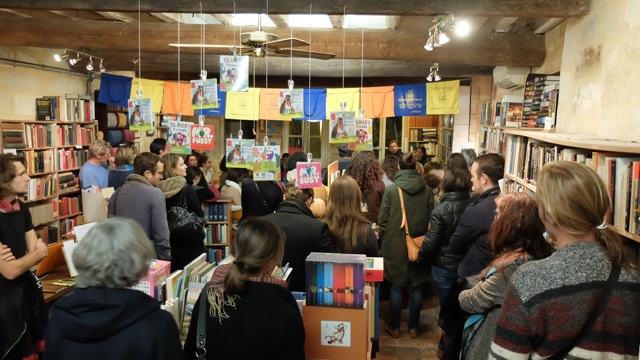
Editions Eternel: “Les classiques oubliés de la littérature” [The Forgotten Classics of Literature] has published Charlie, a translation of sixteen Kate Chopin short stories into French, by Camille Vourc’h.
Ms. Vourc’h writes: “Dans chacune de ces seize nouvelles, c’est le souffle même de la vie qui est écrit, il s’anime quand la passion est trop forte pour les convenances et souvent, il fait gagner l’émancipation.” [In each of these sixteen stories, it’s the spirit of life itself which is described; that spirit moves in people when emotions are too powerful for what is socially acceptable, and often it results in their breaking free.]
Camille Vourc’h owns “Camili BOOKS & TEA,” an English bookshop and tearoom in Avignon, France.
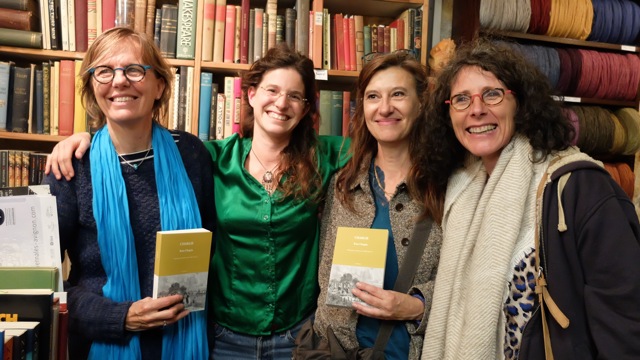
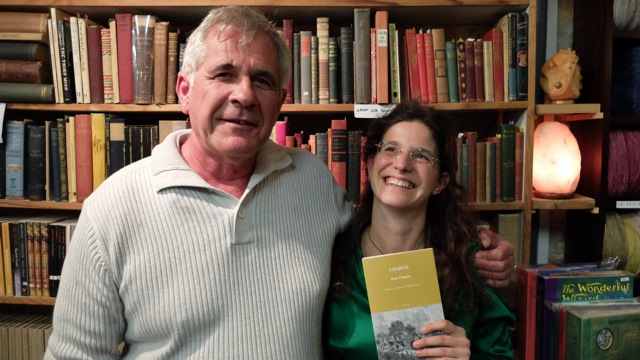
François Chopin is a cousin of Kate Chopin’s great-granddaughters Susie Chopin, Gerri Chopin Wendel, and Annette Chopin Lare. He lives in France near Avignon and attended the reception at Camili BOOKS & TEA celebrating the publication of Charlie. We are grateful to him for the photo showing the reception, the one showing Camille Vourc’h (in green) with people at the reception, and the one showing himself with Camille.
Kate Chopin and African American Life
A recent news item about the Bayou Folk Museum/Kate Chopin House has inspired well-known Chopin scholars to clarify the author’s relationship to African American life in the nineteenth century.
A September 2016 release by the News Bureau of Northwestern State University of Louisiana focuses on two faculty members and the chief of resource management for the Cane River Creole National Historical Park who “will attend a preview event for the grand opening of the Smithsonian National Museum of African American History and Culture in Washington D.C. on Saturday, Sept. 17.”
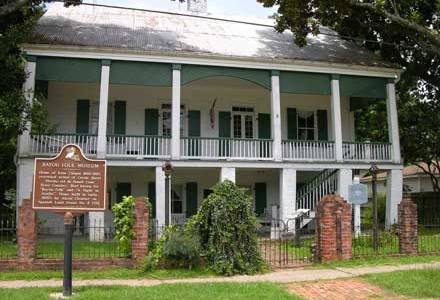
The news release describes two items loaned to the new Smithsonian museum that were “recovered from the Bayou Folk Museum/Kate Chopin House” (destroyed by fire in 2008)—“a plantation bell originally recovered from the Bertrand Plantation in Cloutierville, and an ankle shackle originally used to bind the legs of enslaved workers at the Marco Plantation” near the post office called Chopin.
The new release adds that “in addition to these historic objects, the Cane River Creole National Historical Park is also loaning the museum a collection of artifacts made or used by enslaved people at plantation sites in Natchitoches Parish,” and it quotes Dr. Nancy Bercaw, curator of the National Museum of African American History and Culture, saying “we have been drawn to Cane River since the beginning of the Slavery and Freedom exhibition process for its rich and complex history and culture.”
Chopin scholar Thomas Bonner (Xavier University of Louisiana) notes that “the bell and shackle from the ruins of the Bayou Folk Museum that are on exhibition at the new Smithsonian museum represent antebellum experience in the Cane River area of Louisiana. They were not among the small collection of artifacts related to Kate Chopin on exhibition when the museum, a former home of Chopin, burned.”
And Chopin’s biographer, Emily Toth (Louisiana State University) points out that Kate Chopin was never the mistress of a plantation, and she was critical of the treatment of enslaved people in such stories as “Désirée’s Baby” and “La Belle Zoraïde”
Toth continues with some background history: “Mildred McCoy founded the museum as the Bayou Folk museum as a celebration of the Cane River region. She later managed to get a few Kate Chopin artifacts—some forks, an autographed book, some pictures. But the forks were the only things that had actually belonged to Chopin.
“The house had been Kate Chopin’s home from 1879 to 1884, but it was a village home, not a working plantation. Chopin worked in her husband’s general store and raised six children in that house.
“The other artifacts in the museum included farm tools, bedroom furnishings, and tables and chairs.The house started getting promoted as the Kate Chopin Museum as Chopin became better known, but it was never really about her.”
A New Stage Adaptation of The Awakening in San Francisco
The Breadbox, a theater in residence at the Exit Theatre in San Francisco, California, USA, is offering a world-premiere stage adaptation of Kate Chopin’s The Awakening. Written by Oren Stevens and developed with director Ariel Craft, it began a three-week run at the Exit on July 29, 2016.
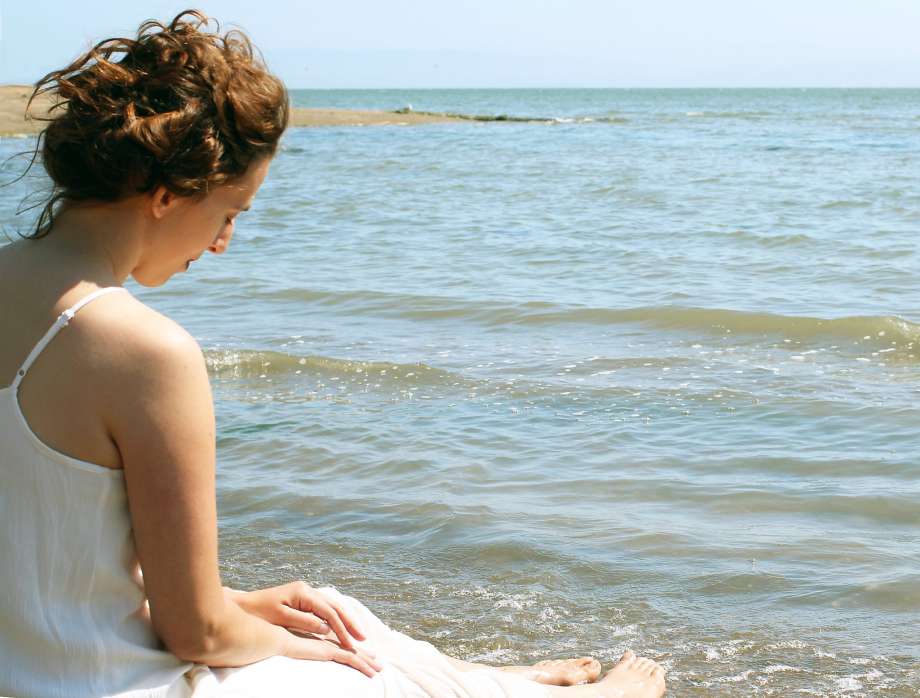
You can read a review of the production by Lily Janiak, the San Francisco Chronicle’s theater critic, and one by Richard Dodds in the Bay Area Reporter.
A 2016 Translation of At Fault into Spanish
Defausta Editorial in Spain has published a new translation of Kate Chopin’s 1890 novel At Fault into Spanish. The novel was translated by Susana Prieto Mori. The volume was published in 2016.
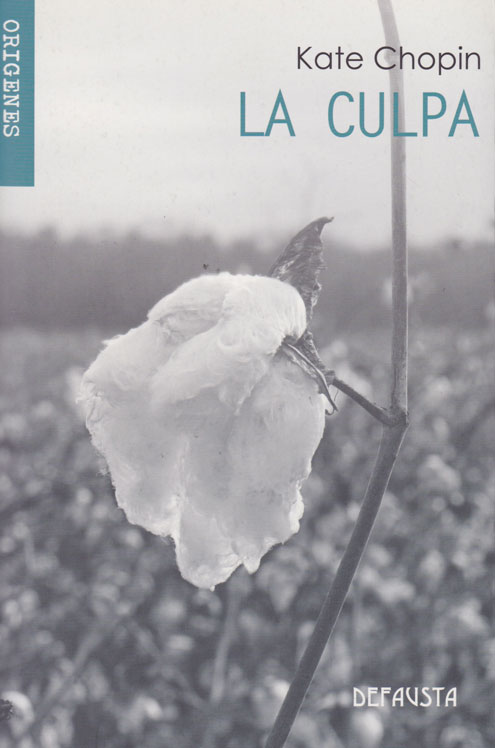
“Team Robert” in a California Classroom
In May 2016 Gerri Chopin Wendel, one of Kate Chopin’s great-granddaughters, visited three advanced-placement classes at a high school in California. Gerri writes that the students were reading The Awakening and that “several of the young ladies had #TEAMROBERT shirts made because they absolutely ached for Robert as they came to realize he truly loved Edna. The three classes signed the back of my shirt.”
That’s Gerri in the middle of the photo.

On July 8, 2016: A Kate Chopin Symposium in Bremen, Germany
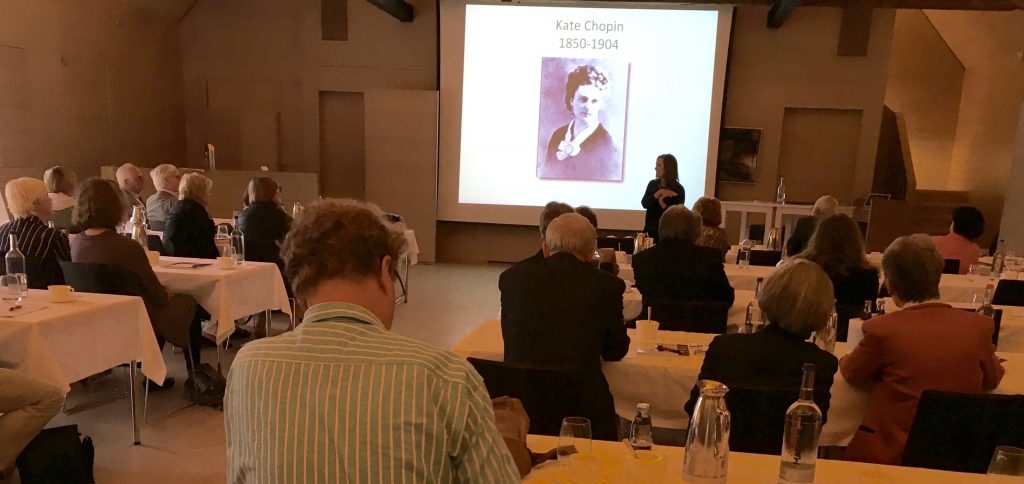
Dr. Heidi Podlasli-Labrenz organized a symposium, “More Than Just a Southern Writer,” held at Knoop’s Park / Kränholm in Bremen-St. Magnus, Germany, on July 8, 2016. It was the first Kate Chopin international conference held outside the United States.
The month, day, and location are significant because Kate Chopin visited the area on July 8, 1870, shortly after she arrived in Germany with her husband on their honeymoon voyage to Europe. The two visited Ludwig Knoop, a wealthy merchant of Bremen who at the time owned the property that is now a park. Podlasli-Labrenz notes that, according to an article in the 1890 New York Times, Knoop’s business had by that time become “among the most prominent cotton concerns of the world with branches in New York, Charleston, [and] New Orleans.”
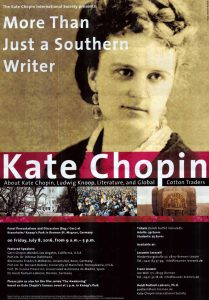
The one-day international symposium featured presentations and discussions (mostly in English) with scholars from Germany, Spain, and the United States.
Heidi Podlasli-Labrenz, who organized the symposium with the Knoop’s Park Foundation, is the editor of this website’s page focused on translations of Kate Chopin’s Work into German, and books, articles, and educational resources about her work published in Germany.
You can read full details about the symposium in German. Or you can read the PDF announcement or contact Heidi Podlasli-Labrenz.
Gerri Chopin-Wendel, one of Kate Chopin’s great-granddaughters, attended the symposium, as did Harriet Grace, a great-granddaughter of Ludwig Knoop. Gerri Chopin-Wendel lives near Los Angeles. Harriet Grace lives in London. The two met in Bremen for the first time.
Gerri Chopin-Wendel (on the left) and Harriet Grace at Knoop’s Park in Bermen, Germany, on July 8, 2016.
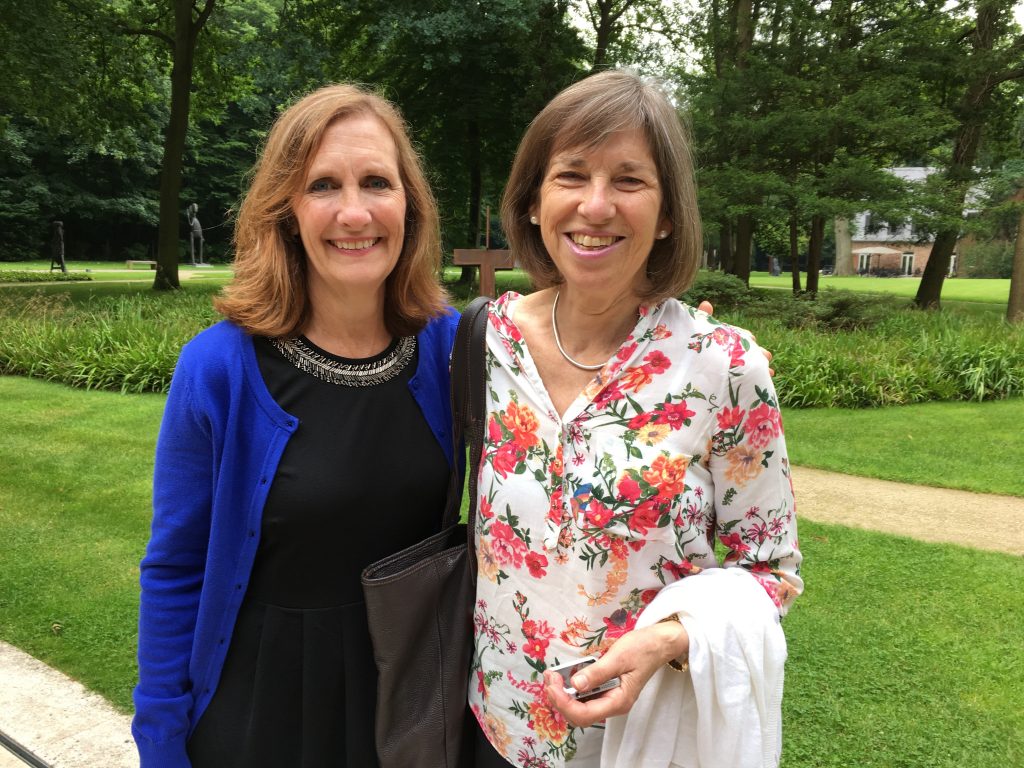
Two Translations of “The Storm” into German
Kate Chopin’s short story “The Storm” is available in at least two translations into German. Der Sturm includes twelve additional Kate Chopin short stories—”At the ‘Cadian Ball,” “Désirée’s Baby,” “The Kiss,” and others. It contains translations by Miriam Hansen and KD Wolff and was published by Stroemfeld/Roter Stern in 1988.
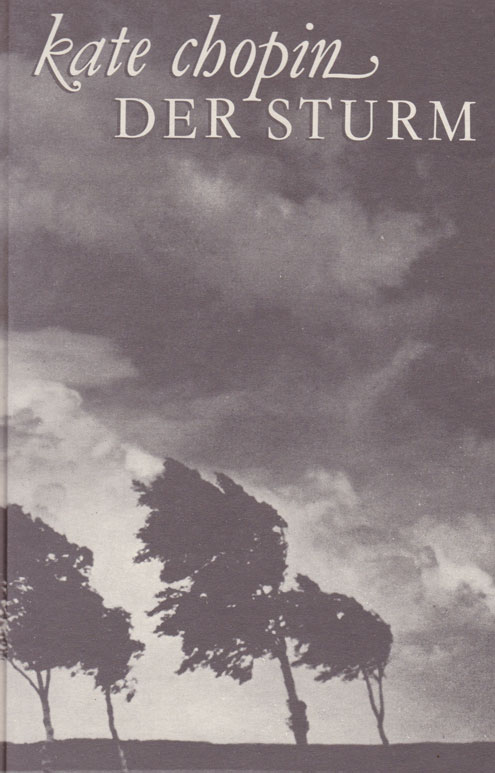
Das Gewitter includes Chopin’s “The Storm,” “A Pair of Silk Stockings,” and “A Respectable Woman” in translations by Xenia Osthelder. It was published by Isensee Verlag in 2013.
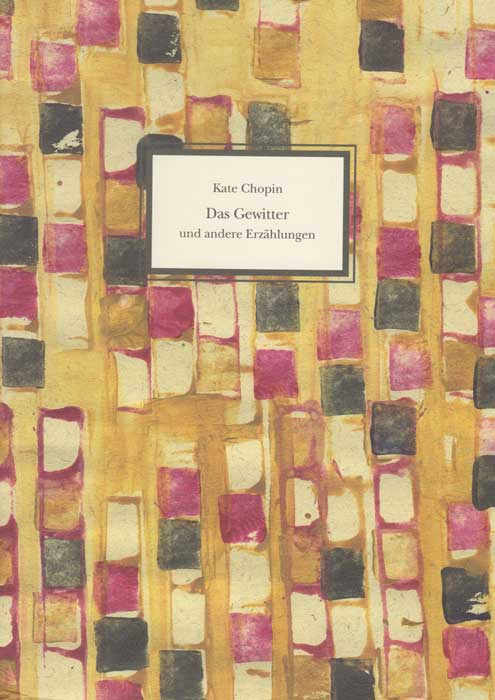
Flooding in Cloutierville, Louisiana, the Village Where Kate Chopin Lived
Kate Chopin’s biographer Emily Toth sent us this photo of the flooding of Cloutierville, in Natchitoches Parish, Louisiana, on March 13, 2016. Parts of Louisiana were damaged by spring flooding. The Natchitoches Parish Sheriff’s Office has posted additional photos of the area.

In 1879 Kate Chopin moved from New Orleans to Cloutierville, a small French village in northwestern Louisiana, after her husband Oscar closed his New Orleans business because of hard financial times. Oscar bought a general store in Cloutierville, but in 1882 he died of malaria–and Kate became a widow at age thirty-two, with the responsibility of raising six children. She never remarried.
She later moved with her family to her hometown of St. Louis, Missouri, where she found better schools for her children and a richer cultural life for herself.
An Awakening Translation in Albanian
Dr. Manjola Nasi on the Faculty of Foreign Languages at the University of Tirana in Albania writes, “I am thrilled to inform you about the recent publication of The Awakening in the Albanian language. Several selected short stories are also included in the publication that I proudly translated.”
The translation was published in Tirana by Argeta LMG in December 2015. It includes translations of “A Respectable Woman,” “A Pair of Silk Stockings,” “The Kiss,” “A Morning Walk,” “Dead Men’s Shoes,” “The Blind Man,” and “Her Letters.”
Oscar Chopin, the 1874 Battle of Liberty Place, and the Removal of the New Orleans Monument
Oscar Chopin, Kate Chopin’s husband and a member of a group called the “White League,” took part in the Battle of Liberty Place fought in New Orleans on September 14, 1874.
The New Orleans Times-Picayune writes that “the battle—said to have lasted 15 minutes, cost 27 lives and left 105 wounded—was between a group of prominent white New Orleanians and ex-Confederate soldiers, called the White League, who routed the Metropolitan Police, which supported Louisiana’s then-biracial Republican Reconstruction regime.”
Now a controversial monument commemorating the battle will be removed. The Times-Picayune writes: “After a comparatively tame—and brief—public hearing, the Vieux Carré Commission voted unanimously Wednesday (Sept. 2, 2015) to recommend that the City Council remove the Battle of Liberty Place monument.”
Chopin scholar Thomas Bonner at Xavier University of New Orleans writes, “The battle at Canal Street and the Mississippi River symbolized viscerally the racial and political conflicts raging in Louisiana during Reconstruction as well as dissatisfaction with employment issues caused by the Panic of 1873. According to James K. Hogue in Uncivil War: Five New Orleans Street Battles and the Rise and Fall of Radical Reconstruction (LSU Press, 2006), many in the White League were unemployed; Emily Toth cites Oscar Chopin’s financial difficulties in her biographies. Furthermore, the battle contributed to the Democratic Party’s conservative control in Louisiana for nearly a century and helped set the stage for the 1896 Plessy vs. Ferguson decision by the United States Supreme Court that established a legal basis for segregation.”
UNESCO’s 2015 World Book Day: India Celebrates The Awakening
Zee News in Mumbai, India, notes that “April 23 marks World Book Day! It is a day of celebrating authors, illustrators, books and most importantly reading! Designated by UNESCO, it is marked all over the world in over 100 countries, as a worldwide celebration of books and reading. It seems like a nice day to talk about some of the books which have truly touched many in the world!” Included among the five books to discuss is Kate Chopin’s The Awakening.
Ritu Singh writes “As evident by its name, [The Awakening] is a novel about a woman’s emotional and sexual awakening. The protagonist, Edna Pontellier’s impatience with conventional trappings and her rejection of traditional female roles is presented with arresting honesty by Kate Chopin.
“In her desire to find her true self, Edna defies social conventions and tows away on a journey of self-discovery. The ending of this book is still fresh in my mind when Edna submits herself to the sea, naked, feeling nothing but exhilarating freedom.
“Best quote: . . . but whatever came, she had resolved never again to belong to another than herself.”
The Death of Early Chopin Scholar Pamela Parker
Kate Chopin’s biographer Emily Toth writes:
Under the name Pamela Gaude, Pamela Parker was one of the promoters of the Kate Chopin Revival. When I met her in the mid-1970s, she’d graduated from University of South Louisiana (now University of Louisiana–Lafayette), and we travelled to Grand Isle together in the summer of 1976–something I wrote up in the Kate Chopin Newsletter. It was the only time I’d ever seen the Grande Terre fort from The Awakening, and the Cheniere Caminada. We took a fishing boat there and listened to Cajun French spoken.
She went on to grad school at Rice, and then to an academic career.
She was a funny, lively person who told great stories. She showed me the mink coat her first husband gave her to try to get her to ignore his philandering ways. She left him, but kept the coat.
She went through several marriages and kept changing her name, but finally returned to Parker. She got some kind of infection during Hurricane Hugo, and never recovered her health.
A Kate Chopin Suite in a Natchitoches, Louisiana, Bed and Breakfast
The Samuel Guy House Bed & Breakfast at 309 Pine Street in Natchitoches, Louisiana, has added a “Kate Chopin Suite” that is “named in honor of writer Kate Chopin, a former Natchitoches Parish resident who was the author of The Awakening.” Rates for 2016 range from $165 to $190 per night, with higher rates around Christmas.
Other News about
Recent Books
Films, Plays, and Operas
Translations
Discoveries
Kate Chopin’s Great-grandaughters
Scroll down for news about a Kate Chopin theatre program—about Barbara Kingsolver—the death of an early Kate Chopin scholar—Chopin’s grave—Sue Monk Kidd—a $14,500 first edition of The Awakening—Diane Rehm—a new bust of Kate Chopin—the top 100 classic books every woman should read—Kim Basinger—the BP oil spill—the fire at Chopin’s Louisiana home. . .
And at the very bottom—news about how Kate Chopin and John Adams killed the Lochness Monster.
Kate Chopin in an April 12, 2015, New York Times article, “Literary Louisiana”
The Sunday, April 12, 2015, edition of the New York Times includes a paragraph about Kate Chopin in the lead article of the Travel section—“Literary Louisiana,” by Jennifer Moses. The national print edition of the Times (but apparently not the online edition) also includes a photo of Chopin (see p. 6).
New Cover Design for The Awakening
Designer Rafi Romaya discusses a redesign of the cover for a Canongate Books (Amazon) edition of The Awakening in an article in the Huffington Post.
“What struck me most when reading the novel,” Romaya writes, “was how relevant and fresh the book felt. The language and themes are in many ways still radical today – so one can only imagine the shock 19th century readers must have felt. I was drawn to this and also to its sense of foreboding as the novel pulls the reader towards its devastating ending. I wanted this to be reflected in the cover design. I also wanted to move it away from the traditional ‘classics’ look and bring it to a new audience — no ladies in bonnets here please!
“Through the shell icon,” Romaya adds, “you can see the turbulent waves of the sea . . . like a peek into Edna’s mind which is never still.”
Barbara Kingsolver on The Awakening
Award-winning author Barbara Kingsolver discusses The Awakening in an August 2014 issue of The Guardian. Kingsolver’s many books have been on best-seller lists since 1993.
“Edna is dated in name only,” Kingsolver writes. “Everything else about her is alive and breathing. As I turn the first page, there she is, still vibrating with frustration and a yen to smash something, keen to break the rule that needs to be broken. Waiting to walk out into the water and awaken.”
Barbara Kingsolver also wrote the introduction to the new Canongate Books (Amazon) edition of The Awakening.
The Death of Early Chopin Scholar John R. May
Kate Chopin International Society President Heather Ostman writes:
It is with great sadness I report to you that Jack May, one of our long-term, long-supporting board members passed away on December 21, 2013. Jack was instrumental in establishing KCIS, and I–like so many others–am indebted to his scholarly and professional contributions. He will be missed much.
Emily Toth has given us permission to share her note to the board below with you all. A donation in his name will be sent to the Baton Rouge Food Bank from the KCIS.
Condolences to all who knew him.
Regards,
Heather Ostman
A note to let you all know that Jack May (John R. May), who was on our board for a long time, passed away on Dec. 21.
He was the department chair who first hired me at LSU, and he was one of the first writers about Kate Chopin. His article about local color in The Awakening was also his first published article.
He published quite a lot and was creating new courses until a few years ago, when his wife died suddenly and his health started to fail. He was in his 80s, I believe. The last time I saw him, about a year ago, he said he intended to get to ALA one of these days and meet the other Chopinists.
We’ve lost one of our good supporters.
Emily Toth
An article about Kate Chopin in Firsts: The Book Collector’s Magazine
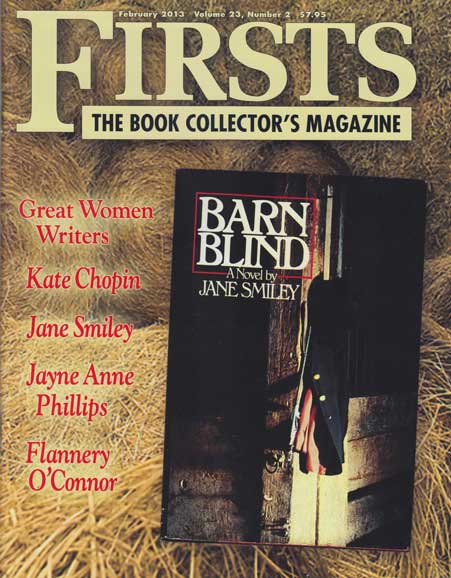
The eight-page article, by Thomas Bonner Jr. and Robert E. Skinner, titled “Rebel in Life and Fiction: Kate Chopin and Her Writings,” is in the February, 2013, issue of Firsts. It describes Chopin’s life, offers a detailed explanation of her best-known works, documents the ups and downs of her popular and critical reception over the past hundred years, and closes with the information that collectors interested in her available books need in order to find copies for purchase.
The article estimates that a first edition of Bayou Folk, Chopin’s first collection of short stories, would now sell for between $1,000 and $2,000; a first edition of A Night in Acadie, her second volume of stories, would sell for $2,000 to $3,000; and a first edition of The Awakening, her 1899 novel, would sell for between $6,000 and $8,000.
Kate Chopin’s Visit to Bremen, Germany

Dr. Heidi M. Podlasli-Labrenz, a member of the Kate Chopin International Society and a Senior Lecturer at the University of Bremen in Germany, recently took this photo of a place that Kate Chopin and her husband visited on July 8, 1870, shortly after their marriage. On our Biography page you can read more about the Chopins’ trip to Germany.
Fine Art Open Edition Giclée: The Awakening
A Giclée reproduction of the first edition of The Awakening is available from GalleryDirectArt for $95.
According to the website gicleeprint.net the term giclée print “connotes an elevation in printmaking technology. Images are generated from high resolution digital scans and printed with archival quality inks onto various substrates including canvas, fine art, and photo-base paper. The giclee printing process provides better color accuracy than other means of reproduction.”
The Library of America’s Story of the Week: “Athénaïse”
The Library of America sends a Story of the Week to its e-mail subscribers. Among the most popular stories for 2013 was Kate Chopin’s “Athénaïse.”
Kate Chopin’s Grave Described in an Atlantic Article
The October 31, 2012, issue of the Atlantic includes an article by Alexis Hauk titled, “The Real Dead Poets Society: How America Buries Its Famous Writers.” Hauk’s article describes the graves of American authors, including that of Kate Chopin in St. Louis. Hauk discusses the grave with Susie Chopin, Kate Chopin’s great-granddaughter.
Alexis Hauk is a writer and editor based in Washington, D.C.
The Atlantic Monthly, as it was known in the nineteenth century, published three short stories by Kate Chopin, including–in 1896–the widely read and discussed “Athénaïse.”
Sue Monk Kidd and The Awakening
Sue Monk Kidd, author of The Secret Life of Bees and The Invention of Wings was interviewed by a New York Times Book Review editor. In the interview she was asked, “Which novels have had the most impact on you as a writer?”
She answered “Kate Chopin’s The Awakening, which I first read in college. The story of Edna Pontellier’s struggle with the limits her culture placed on women made a deep and lasting impression on me.”
An Interview with Emily Toth about The Awakening
The January 30, 2013, edition of Wisconsin Public Radio’s “Back-to-School Book Club” show features Kate Chopin biographer Emily Toth being interviewed by WPR’s Kathleen Dunn. University of Wisconsin professor Russ Castronovo and Louisiana State University professor Toth talked about why The Awakening helped to awaken the nation to female voices.
“Kate Chopin’s The Awakening received harsh reviews from male critics when it was released in 1899,” the announcement of the interview says. “Chopin wrote overt descriptions of female sensuality, and the main character, Edna Pontellier, disdains the role of wife and mother that is prescribed for her in turn-of-the-19th-century New Orleans.”
Kate Chopin in Bloom
“Ego and Eros: Kate Chopin, Redefining the Female Protagonist,” a 2012 article by Jill Kronstadt of Montgomery College, Maryland, has appeared in Bloom–“a literary site devoted to highlighting, profiling, reviewing, and interviewing authors whose first major work was published when they were age 40 or older.”
Bloom was founded in 2011 and has featured 13 authors including Walker Percy, Giuseppe di Lampedusa, Anna Keesey, Isak Dinesen, William Gay, Harriet Doerr, Daniel Orozco, and others.
A First Edition of The Awakening Priced at $14,500
AbeBooks.com in mid-November, 2012, listed 67 books by Kate Chopin for sale, including three first editions of The Awakening. One of the first editions was priced at $14,500, one at $7,500, and one at $7,200. Other books by Chopin ranged in price from $155 to $1.
On June 21, 2012, a first edition of The Awakening sold at auction for $3,600 at Swann Gallery in New York City (104 East 25th Street). An announcement of the auction had been posted in the June 4 and 11, 2012, edition of The New Yorker.

The price estimate for the book had been $2,000 to $3,000 US dollars.
Diane Rehm Discusses Chopin’s The Awakening on NPR
Diane Rehm hosted a “Readers’ Review” of The Awakening on National Public Radio’s “The Diane Rehm Show” on Wednesday, April 18, 2012.
Guests for the discussion were Jane Holmes Dixon, Suffragan Bishop of the Episcopal Diocese of Washington; Judith Warner, author of Perfect Madness: Motherhood in the Age of Anxiety and We’ve Got Issues: Children and Parents in the Age of Medication and a columnist for Time.com; and E. Ethelbert Miller, poet, director of the African American Resource Center at Howard University, Board Chair of the Institute for Policy Studies.
A New Bust of Kate Chopin Revealed in St. Louis
The Central West End Association of the city of St. Louis, Missouri (USA), has dedicated a Kate Chopin bust at the Writers’ Corner in the city.

KBIA, a radio station in St. Louis had posted this in October, 2011:
“The history of St. Louis’s Central West End is steeped in literature. The area is tied to four of America’s most famous writers: T. S. Eliot, Tennessee Williams, Kate Chopin and William S. Burroughs. But until recently, the neighborhood had no official tributes to the literary greats.”
You can read our interview with the sculptor, Jaye Gregory.
Chopin’s “A Pair of Silk Stockings” and “Athénaïse” Read in Simplified English
If you’re not yet fluent in English, you can hear a version of Chopin’s “A Pair of Silk Stockings” read in “Special English,” used by the Voice of America to “communicate by radio in clear and simple English with people whose native language is not English.”
You can also hear a version of Chopin’s “Athénaïse” read in “Special English.”
The Awakening: First in the “Top 100 Classic Books Every Woman Should Read”
“More.com,” a website and magazine “celebrating women 40+” has posted its list of the “Top 100 Classic Books Every Woman Should Read.” Chopin’s The Awakening is #1.
Kim Basinger records The Awakening for Audible.com
Audible.com (an Amazon company) has hired actors to produce “tour de force performances” of new audiobooks. The lineup includes Anne Hathaway reading The Wonderful Wizard of Oz by L. Frank Baum, Colin Firth reading The End of the Affair by Graham Greene, Kate Winslet reading Thérèse Raquin by Émile Zola, Nicole Kidman reading To the Lighthouse by Virginia Woolf, and Kim Basinger reading The Awakening by Kate Chopin. The Awakening is now available.
Kate Chopin as a Southern Novelist
Today Kate Chopin is best known for her sensitive treatment of women’s lives. But in the 1890s she was praised mostly for her “local color,” her pictures of Louisiana Creoles and Acadians. Some of her regionalist reputation survives and is evident in a recent article in The Oxford American: The Southern Magazine of Good Writing. The article describes a poll of 134 writers and scholars asked to name “The Best Southern Novels of All Time.” Kate Chopin’s The Awakening came in 17th in the poll. Absalom, Absalom, by William Faulkner, was ranked first.
Older News
Kate Chopin, the New York Times, Grand Isle, and the BP Oil Spill

This satellite photo from June 10, 2010, shows the oil slick in the Gulf of Mexico. The photo comes from NASA’s Goddard Space Flight Center’s MODIS (Moderate Resolution Imaging Spectroradiometer) Rapid Response System. You can view and download updated photos on the MODIS Rapid Response site.
The New York Times on July 9, 2010, ran an op-ed essay by Martha Serpas describing the effect of the April 20 BP oil spill on life along the Louisiana coast.
“I was born and raised on Bayou Lafourche,” Serpas begins her essay, “30 miles from Grand Isle, which is Louisiana’s only inhabited barrier island and also the setting of Kate Chopin’s 19th-century novel of maternal disorientation, The Awakening. But Frankenstein offers the more appropriate narrative lesson for the Deepwater Horizon disaster.”
An earlier front-page article in the Times on June 11, 2010, focuses on how the oil spill is affecting the people of Grand Isle.
“Grand Isle,” the Times articles says, “has undergone huge transformations before. Over the last 300 years it has been home to pirates and smugglers, sugar plantations and several grand hotels that were wiped out by the hurricane of 1893. It was the setting of Kate Chopin’s 1899 novel, The Awakening [the Times article includes a link to this site]. Now most islanders make their living from fishing, tourism, or the oil industry, which have all been imperiled by the oil spill.
A June 14, 2010, article in the Huffington Post develops the story.
Kate Chopin’s Louisiana Home Destroyed by Fire
Fire destroyed the Kate Chopin House (the Bayou Folk Museum) at 243 La. Highway 495 in Cloutierville, Louisiana, early on October 1, 2008.

Photo by Jean Carter, courtesy Cane River National Heritage Area
We received the following message from Jean Carter:
“I am sending you several of my photos of the tragic fire (10/1/08) that destroyed this wonderful residence and all of its contents. The entire Cloutierville community has suffered a tremendous loss much akin to the death of a beloved family member.
“The historical and cultural heritage of this region will never be the same, and because this tragedy is so fresh, not much has been directed toward the future of the remaining structures on the Kate Chopin property. I hope that you will be able to share my photos with those who value Kate Chopin the person and the author. Thanks for caring about the Kate Chopin House and Bayou Folk Museum.
Jean Carter is the Heritage Ranger for the Cane River National Heritage Area
According to the Shreveport Times:
“The site was a National Historic Landmark and, in its heyday, drew literary audiences from throughout the United States. The loss of the structure and its contents is ‘devastating’ for the multitude of men and women who for decades have been committed to preserving the Kate Chopin House, said Vicki Parrish, president of the Association for the Preservation of Historic Natchitoches. . . .
“History dates construction of the house by slave labor to 1805 to 1809. Alexis Cloutier was the original inhabitant. Oscar Chopin bought it in 1879 and, years later, moved his wife and their six children to the plantation.
“Oscar Chopin died in 1882. Kate Chopin, known as a free-spirited woman, tried to keep it up but moved away in 1884. She sold the property and moved to St. Louis, where she began her literary career.”


Photos before and after the fire by Jean Carter, courtesy Cane River National Heritage Area
We received this message from Thomas Bonner, Jr:
“The Kate Chopin House stood on a less traveled Louisiana highway in the small town of Cloutierville. The size of the town, closer to a village, has changed little since the early 1880s when Chopin lived there with her family. Cars and trucks have replaced the horses and wagons that once traveled the road along the front of the house where once a dirt street separated wooden sidewalks. From the front gallery of the house, one could look across the road over the low roofs of modest modern homes to the slowly meandering Cane River and the cultivated fields beyond, a scene similar to what Chopin herself would have enjoyed.
“The house itself built on brick piers would have survived any high water from an over flow of the river. The main rooms were six to seven feet above the ground-level basement. The house was more charming and gracious than elegant; in the Mississippi Valley it was rare to have an elegant home far from the Mississippi River, the route which artisans in the fine building trades traveled.
“As Chopin had earlier in New Orleans, she collected characters and experiences for her fiction in and around the settlement on the Cane River. In her writing she used the ‘village’ as she often referred to Cloutierville in many stories, at least once describing it as ‘two long rows of very old frame houses.’ She set her first novel At Fault in the pastoral plantation country about Cloutierville, where the modern world was arriving in the forms of the railroad and lumber mills.
“The great threat to homes in Chopin’s time was fire, and that threat was realized in the past week when now the chimney overlooks the ruins about it.”
What Had Been in the Kate Chopin House (the Bayou Folk Museum)
In June 2014 we received this message from Thomas Bonner, Jr: “I came across notes that I made on April 12, 2008, when my wife Judith and I lectured at the Chopin house in Cloutierville. I had been to the house twice before and was aware that there was a paucity of Chopin-related items in the house-museum. On this visit, I thought that the interior and exterior of the house was in better condition than previous visits. It was always managed rather casually when compared to other museum houses that I had seen, and so I decided to list the Chopin-related items in my notebook after the talk”:
Upper West Room
Hat Stand, from Ruth Sampite, granddaughter of Mrs. Albert Sampite, mother of Dr. J.A. Sampite.
Upper East Room
Painting of house by Marjorie Chopin McCormick, granddaughter of Kate.
Three silver forks from Chopin family.
Bayou Folk, 1894 first edition.
Copy of 1861 baptismal document of Marie Chopin, Oscar’s sister.
Copy of 1880 baptismal document of Marie Laiza Chopin, daughter of Oscar and Kate.
Ground Floor West Room
Photograph of house in early 1900s when owned by the Culbertsons (1898-1918).
Ground Floor East Room
Painting of house by Marjorie Chopin McCormick.
Thomas Bonner, Jr. is Professor Emeritus at Xavier University of Louisiana. He is the author of The Kate Chopin Companion with Chopin’s Translations from French Fiction. He has published and spoken on Kate Chopin and her writing since 1969.
|
We received the following message from Susie Chopin and Annette Chopin Lare: While our family has never placed great emphasis on material things, there was a collective gasp and profound sadness when it was learned that Kate’s home in Cloutierville, Louisiana, had burned. The Kate Chopin House in Cloutierville was our grandfather’s boyhood home. For those of us who were fortunate enough to visit The Bayou Folk Museum, walking through the rooms where Kate and Oscar lived with their children and seeing the bayou country that inspired so much of Kate’s best work, was an inspiring and unforgettable experience. We understand a first edition of Bayou Folk has been spared and for this we are forever grateful to the person whose hands picked it up. We speak for our entire family in expressing our thanks to those who cared for the Bayou Folk Museum over the years and to all of you who keep her words and spirit alive on a daily basis through wonderful websites such as this one and the Kate Chopin Society of North America in Kate’s hometown of St. Louis. We’re also grateful to those who continue to research and teach her writings in universities all over America and abroad. You do Kate and our family a great honor. We’re fortunate to have one of Kate’s remaining homes in St. Louis. While the Cloutierville house can never be replaced, it is our hope that one day her final home in St. Louis can be restored with the same love and care as the Bayou Folk Museum. Very sincerely, Susie Chopin Annette Chopin Lare |
Kate Chopin and John Adams Kill the Lochness Monster
Finally, Kate Chopin seems to be everywhere these days. And she seems to be able to do anything.
